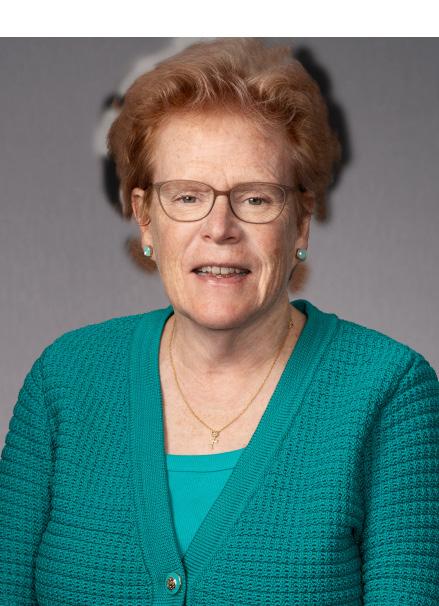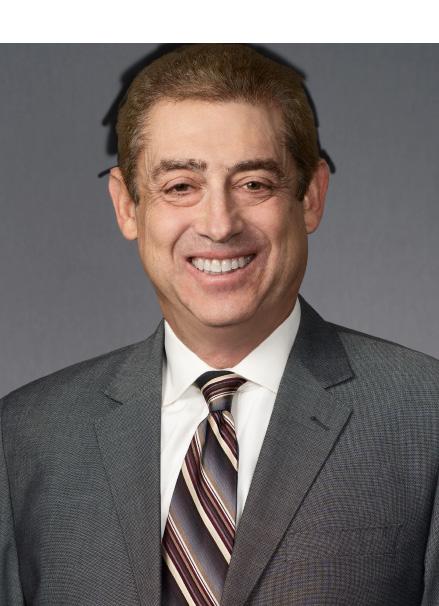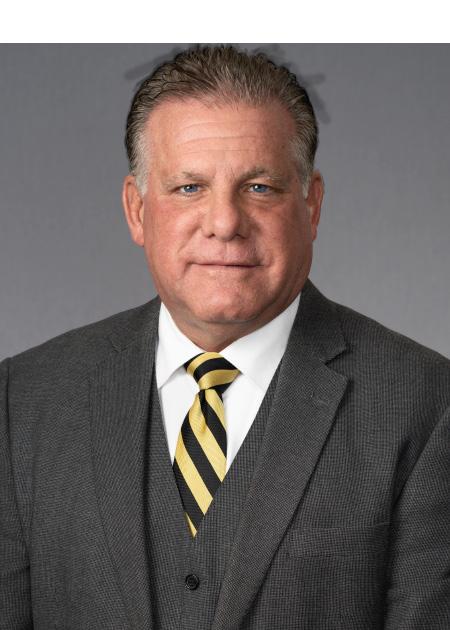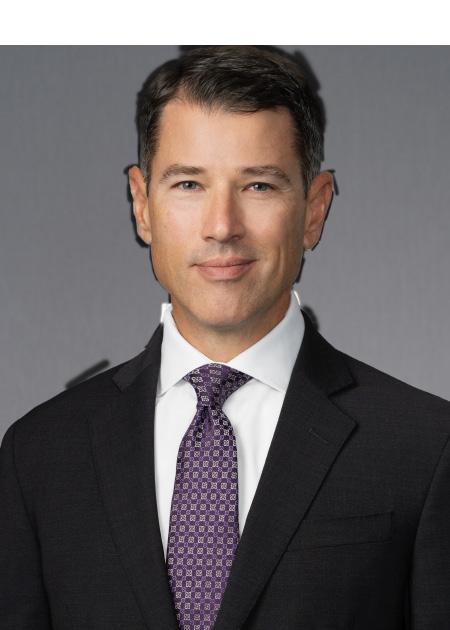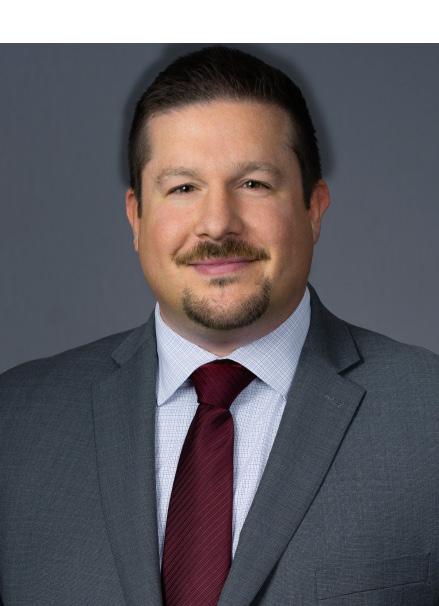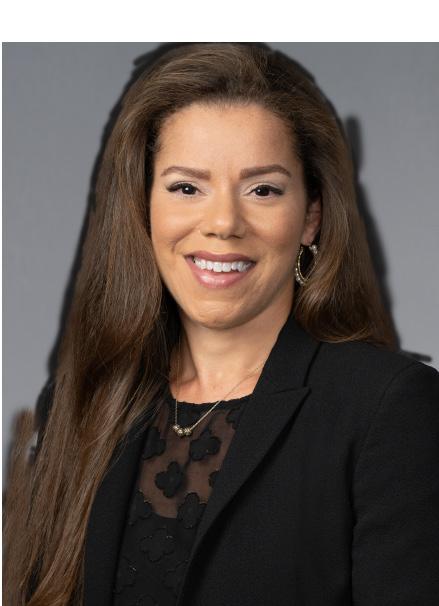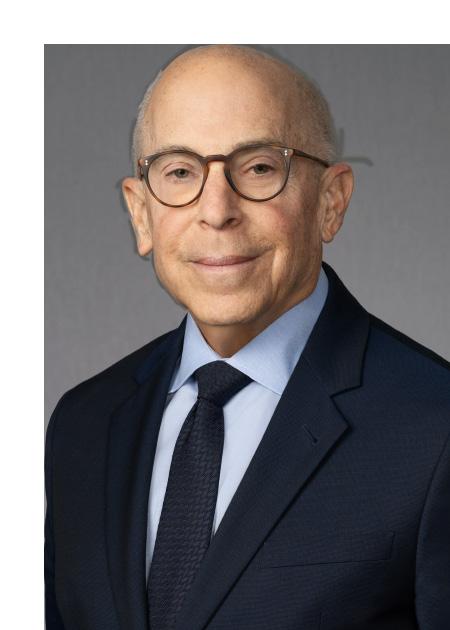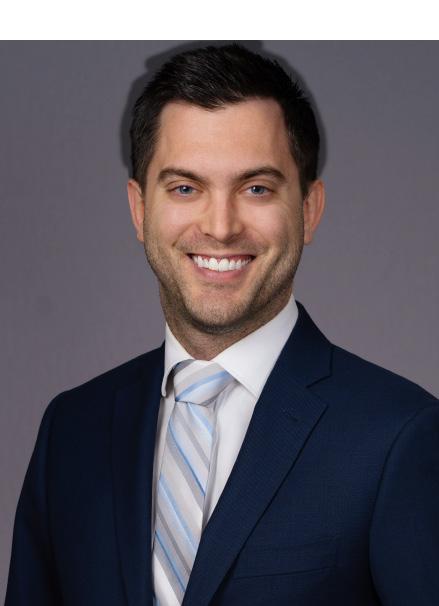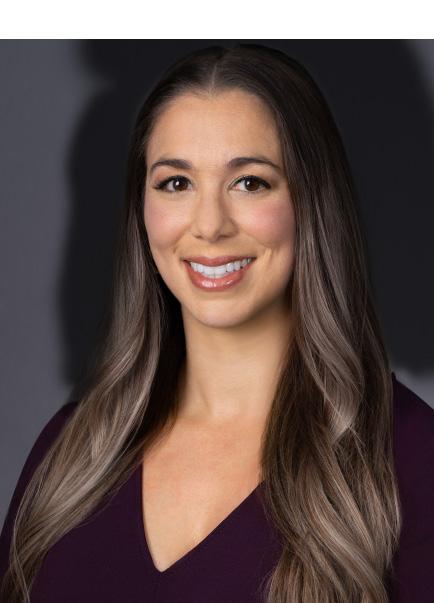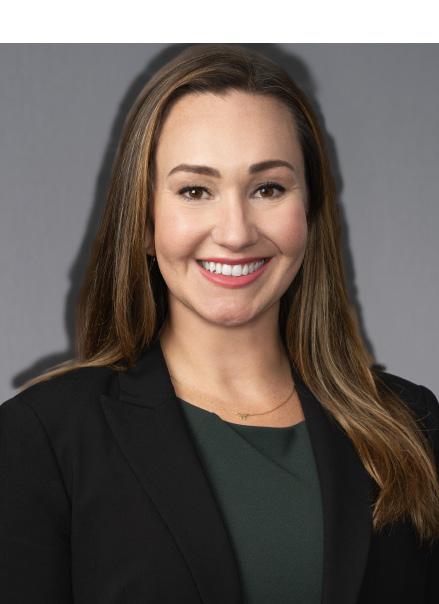BUCKS COUNTY BAR FOUNDATION
SCHOLARSHIPS AND LAW DAY WINNERS
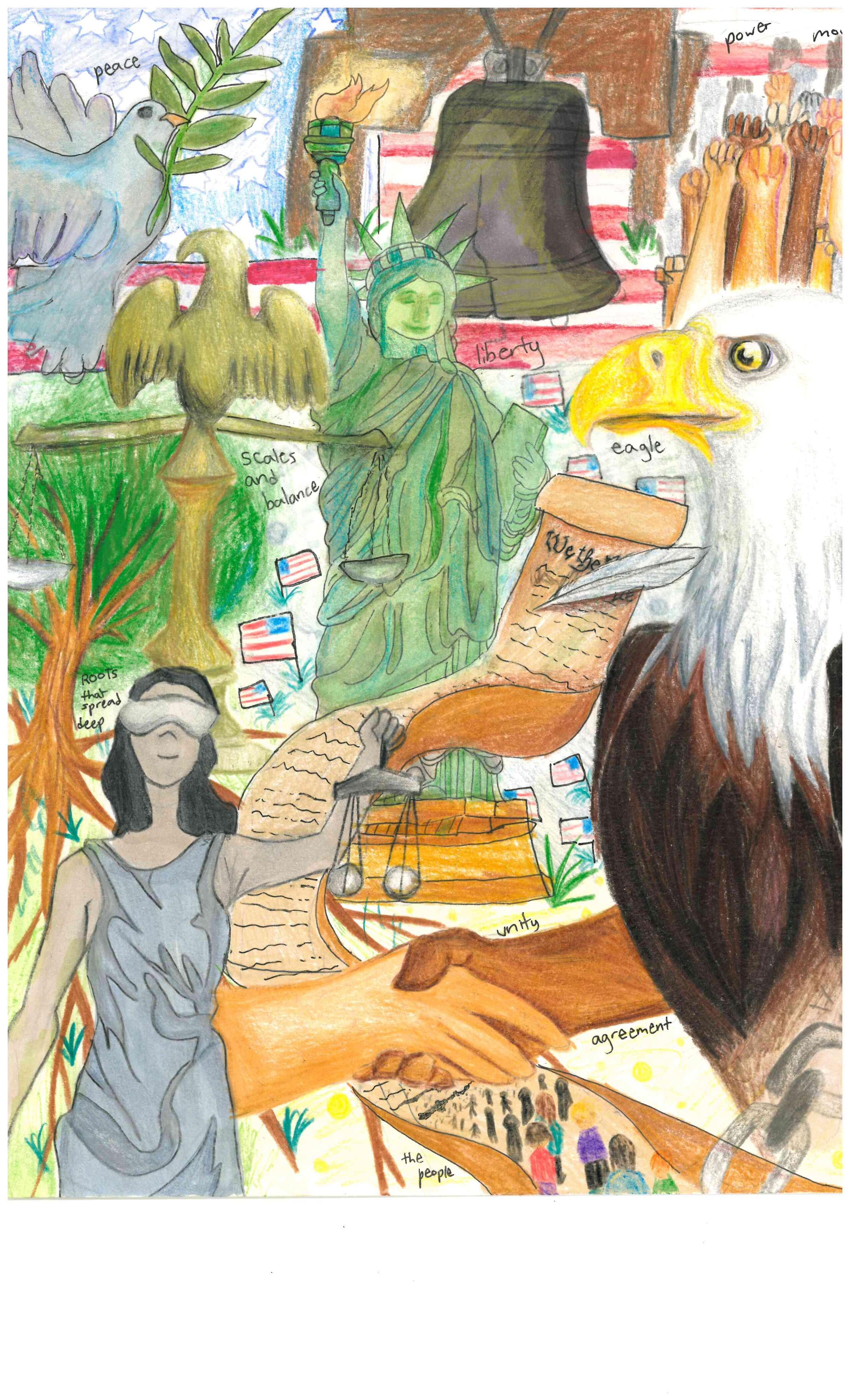
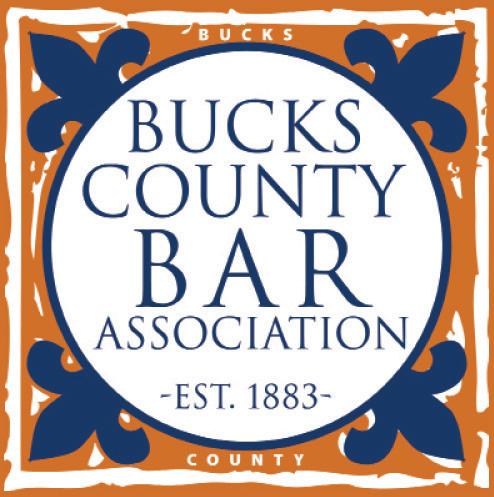
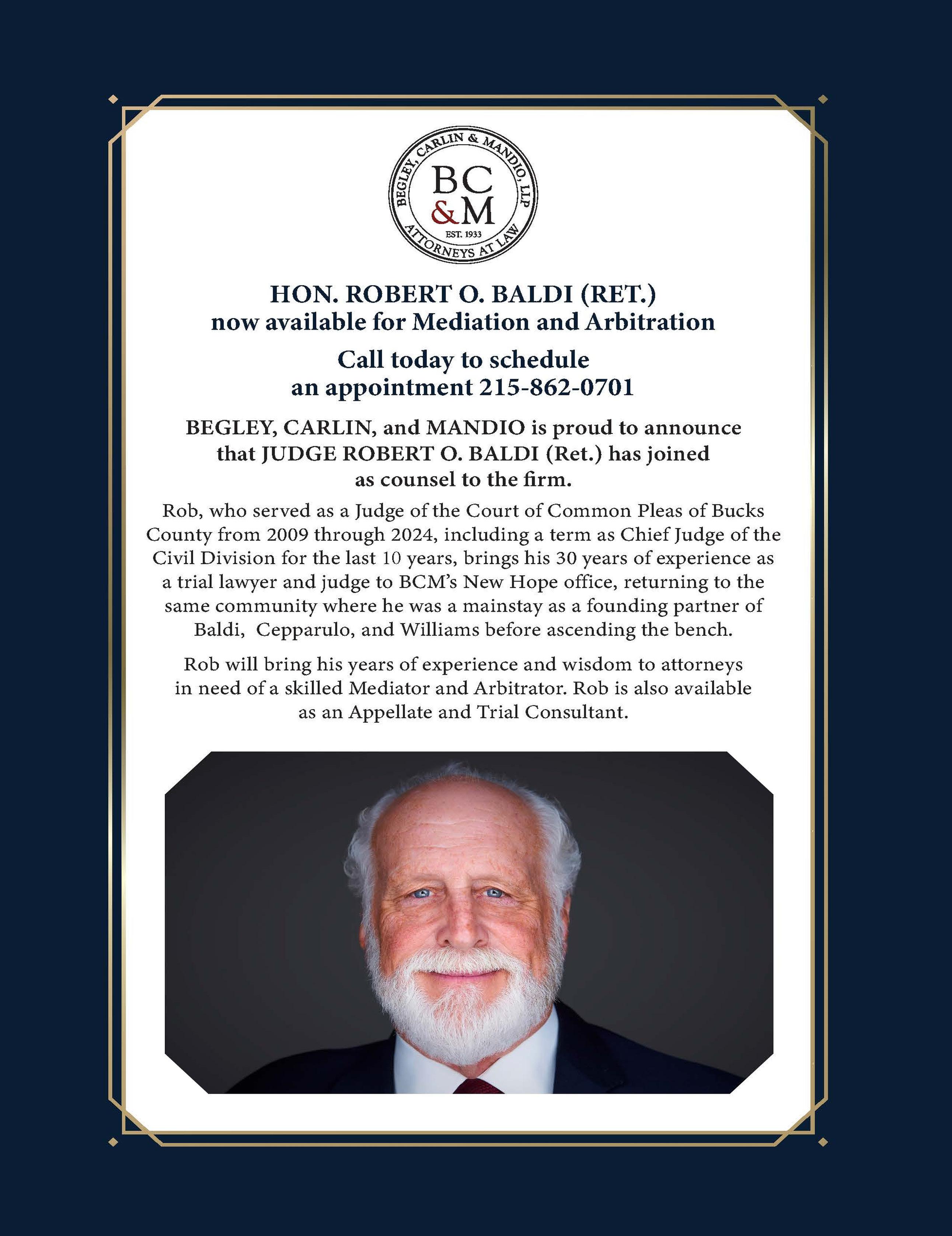


Built to be addictive and now blamed for mental health and behavioral issues in kids.
Qualifiers: Youth with anxiety, depression, therapy, school issues tied to excessive gaming.
Ultra-Processed Foods: Big brands. Big health risks.
Linked to type 2 diabetes, fatty liver, and childhood obesity.
Qualifiers: Children with related diagnoses and high processed food intake.
Ozempic/Wegovy/Mounjaro: Weight loss, with a cost.
Tied to gastroparesis, vomiting, and GI surgeries.
Qualifiers: Use of GLP-1 drugs followed by GI diagnoses or hospitalization.
Hair Relaxers & Cancer: Straighteners linked to uterine & ovarian cancer. Particularly impacting long-term users.
Qualifiers: Regular relaxer use + cancer diagnosis (especially younger age).
Infant Formula NEC: Formulas like Similac & Enfamil. Allegedly led to NEC, a deadly intestinal condition.
Qualifiers: Premature infants diagnosed with NEC after formula use.

CONTACT INFO
President
Jeremy D. Puglia
Vice President/President Elect
Melanie J. Wender
Secretary
Elaine T. Yandrisevits
Treasurer
Stephanie M. Shortall
Immediate Past President
R. Tyler Tomlinson
Past Presidents’ Representative
Daniel M. Keane
Board of Directors
Hon. Robert O. Baldi
Abigail C. S. Bukowski
Brendan M. Callahan
Joseph A. Cullen
Steven M. Jones
Jeffrey A. Liebmann
Kimberly Litzke
Tina Mazaheri
Joanne M. Murray
Travis P. Nelson
Thomas E. Panzer
Mindy J. Snyder
Writs Editor
Travis P. Nelson
Writs Photographer
Emily McGee
Bar Association Office
Heather Cevasco, Executive Director 135 East State Street Doylestown,

Bucks County Bar Foundation Scholarships and Law Day Winners
The Bucks County Bar Foundation celebrated...
A Night with Chief Justice of the Pennsylvania Supreme Court Debra Todd
On April 30, 2025 the Women Lawyers Division...

Power in Our Names: How Culture Shapes Our Identity


There is no doubt that a name carries great weight...
Padilla v. Kentucky and Beyond
Since the United States Supreme Court decided...
Serving the legal needs of low-income residents in Bucks County
As the county seat, Doylestown is often considered...


Pennsylvania’s Act 146
In a significant and compassionate move,...
Profiles in Public Service
January 2, 2024, was a day seeming like any other...
On the cover: First place poster by Hara Jang, 6th grader at Butler Elementary School

President’s Message

I’ll admit—being President is far more time-consuming than I initially imagined. Like becoming a parent for the first time, nothing truly prepares you for what lies ahead. That said, I want to take a moment to recognize and publicly thank the incredible BCBA staff for the immense time, dedication and effort they put into making our Association run smoothly every single day.
Rather than generalizing their contributions, I want to highlight each team member individually and give you a small glimpse into what I’ve seen firsthand over the past six months.
Heather Cevasco (Executive Director): Happy to stay behind the scenes and never seek fanfare, Heather is the person who makes things happen. She’s tireless, steady, and devoted to serving. She is both professional and personable—a rare and powerful combination. Since joining us in February 2023, she has grown immensely in her role, and I genuinely cannot imagine navigating my presidency without her. Our Association is truly fortunate to have her. One more thing: if you know me, you know I’m a huge Seinfeld fan. In the Season 5 episode “The Lip Reader,” the phrase “It’s not you; it’s me” gets tossed around during multiple relationship breakup scenes. Well, let me flip that script—if anyone has an issue with Heather: It’s not her; it’s you.
Barbara Sauers (Director of Operations): Yes, Barb is the keeper of the checkbook and keeps us in line from a budget perspective, but she is so much more. She is intimately involved with the planning for all the events we have. If you attend one of our events and think to yourself “oh, that was a neat idea,” there’s a good chance the idea was birthed from the inimitable mind of Barb. I often find myself in her office chatting about her love of Disney World, NASCAR and Sprint Car racing where she religiously follows and cheers for the PA Posse. Apparently, the PA Posse is engaged in an immense rivalry with the World of Outlaws. (Look it up…it’s a real thing.) Barb is truly one-of-a-kind and is a pleasure to be around.
Emily McGee (Director of Development & Marketing): Emily is the primary contact with all our sponsors, making sure each one is happy and gets the most bang for their buck. She is also our social media coordinator, posting on Facebook and LinkedIn many times per week. This enables the BCBA to get more visitors to our website and, in turn, more referrals (more on this later). It is amazing to see how much Emily has accomplished in her role over the last few years, and I’m excited to see where she takes this role moving forward.
Kristen Norcross (Education & Advertising Coordinator): I’ve been on the Board of Directors for eight consecutive years, starting as YLD Chair in 2018. For most of that time, we’ve talked about being more consistent in the CLE offerings for our members. Kristen stepped into her new
role just last year and, after just a few months, we can now finally say: mission accomplished. In the first five months of 2025, we’ve had more CLEs—and more attendees—than any other five-month stretch in the past decade. Incredible work, Kristen!
Lynn Abbonizio (Director of the Lawyer Referral & Information Service (LRIS)) and Joanne Focht (LRIS Administrative Assistant): If you didn’t know, LRIS is a free public service that our Association provides to Bucks County residents. Each year we handle more than 6,000 inquiries from people looking for legal help. Lynn and Joanne manage them all with empathy and professionalism. No caller is treated as unimportant. In fact, they make each potential client feel valued and heard. They also do an outstanding job referring clients to the appropriate attorneys. Thank you, Lynn and Joanne, for your kindness, care and service to our community. And happy 10-year anniversary to Lynn as of June 2025!
Dylan Gilheany (Facilities Manager): By the time this issue of The Writs comes out, Dylan will have moved on from the Bar Association. But I simply cannot finish this article without including him. For nearly 10 years, if something needed doing, chances are that Dylan already did it—with one hand—while fixing something else with the other. From removing tree stumps to 3D printing shot glasses at home, from rearranging the furniture to building axe-throwing structures, Dylan was the Swiss Army knife of the Bar Association. He was the one-man task force we all relied on. Dylan, you will be missed, but we are all happy to see you take this chance in your professional career. We are all wishing for you, and expecting, immense success in this new chapter in your life.
In closing, as I reflect on the first half of this year, I find myself filled with increasing gratitude for the incredible team that keeps the Bucks County Bar Association running strong. Each staff member plays a vital role in making our organization not only functional, but exceptional. Their dedication, creativity, and ability to collaborate are the backbone of our continued success. I’m proud to work alongside them and even prouder to lead an Association supported by such outstanding individuals. Here’s to the rest of 2025!
– Jeremy Puglia, Esquire Bucks County Bar Association President
P.S. See you at Seaview for the Best Bench Bar Since Hershey!!!
Jeremy D. Puglia is a shareholder at Drake, Hileman & Davis where he handles personal injury claims as well as other general civil litigation matters. Jeremy is the President of the Bucks County Bar Association.

Heefner, https://www.linkedin.com/company/curtin-&-heefner-llp/posts/?feedView=all.
In this edition of The Writs, we see an example of how diversity is experienced in an article by Chisom Ihejirika and Prathika Gadde. Chisom is an associate at Curtin & Heefner, LLP (“C&H”), and Prathika is a 2025 graduate of Central Bucks East High School, and an intern at C&H. This article highlights the significance of cultural acceptance and inclusion in all aspects of life, but particularly in our roles as legal professionals. DEI can also flourish in mentorship programs. Tiffany Thomas-Smith, a partner at C&H, and Chair of the Bucks County Bar Association’s Diversity, Equity and Inclusion Committee, commented: “In the legal community, mentorship can be a key element to success. One of the most significant benefits of mentorship is the experiential reciprocity between mentor and mentee. We learn from one another, intellectually, emotionally and culturally to support, share and learn.”
In terms of supporting diversity, let us remember that we do not need legislation and government mandates to celebrate and promote diversity. In some cases, the marketplace will require diversity. In my practice, when responding to requests for proposal (“RFP”) from large financial institutions, the RFPs sometimes ask us to discuss and detail the firm’s commitment to diversity. Some clients have even required that projects be led (at least in part) by diverse attorneys. In such situations, there is a clear economic incentive to promote diversity. However, furtherance of diversity is also accomplished in the quiet, uncelebrated tasks that we do in our everyday lives, those tasks for which we do not receive awards or acclaim.
CELEBRATING A LOCAL HERO
Most Americans tend not look forward to encounters with law enforcement. When we see the red and blue lights following our car, it is hardly a cause for celebration (they are not pulling me over because they are fans of my In-n-Out Burger license place frame). I grew up with a healthy appreciation for the important role that police officers play in our communities. My dad spent decades as a member of the L.A. County Sheriff’s Department’s Mountain Rescue Team, so I was around cops frequently. However, I know that not everyone has the same view of law enforcement.
Over the past few decades law enforcement has strived to improve the public’s image and impression of policing. Through various community policing partnerships, law enforcement has focused on strengthening the relationship between police and the public by fostering trust, communication, and collaboration. Local programs, such as Shop with a Cop, have made a measurable difference in the way that young people perceive and interact with a
police officer. See, e.g., Middletown Township PD, https:// www.mtpd.org/Events/Shop-with-a-Cop; Quakertown Borough, https://www.quakertown.org/government/ police/community-policing/shop-with-a-cop. The National Night Out offers an opportunity for the public to not only interact with law enforcement, but also to check out police vehicles, including cruisers, SWAT vehicles, and sometimes Pennsylvania State Police helicopters. National Night Out for the Doylestown area is August 5, 2025, at Central Park. Check your local police websites for National Night Out venues near you.
In this edition, we profile another example of the great work that our local law enforcement are doing. Our highlighted profile in public service for this edition is Sgt. Thomas J. Rutecki, of the Plumstead Township Police Department. In the article, you will read about Sgt. Rutecki’s extraordinary heroism that saved a young woman’s life.
OPPORTUNITIES FOR SERVICE
In the above, I do not mean to dwell on more divisive issues permeating our public discourse, but rather to highlight the ability of ordinary Americans to do extraordinary things. Whether it is supporting the rule of law, even when you disagree with the court’s decision, or promoting opportunities for all qualified persons, regardless of their backgrounds, or showing a little grace to our fellow citizens in blue, even when they are giving us a ticket, we all have the opportunity to make a positive impact on our community and our profession. But where do we start?
To commemorate our new Augustinian Pope (and fellow Villanova grad, hopefully he will come to homecoming), I note what St. Augustine of Hippo wrote over 1500 years ago: “[S]ince you cannot do good to all, you are to pay special regard to those who, by the accidents of time, or place, or circumstance, are brought into closer connection with you.” These people, who are brought into our lives “by accidents of time,” can be our colleagues, our mentees, Legal Aid clients, Law Day participants, or even someone you encounter on the street. The opportunities abound!
Have a wonderful summer and come back in the Fall, refreshed and renewed, to do more great work for our Bar Association, and our community!
–
Travis P. Nelson, Esquire
Travis P. Nelson is a partner at Polsinelli, P.C., where he practices financial institutions regulation and enforcement law, and is a Doylestown resident. Mr. Nelson is the Editor of The Writs.

BUCKS COUNTY BAR FOUNDATION Scholarships and Law Day Winners
Jeffrey A. Liebmann

The Bucks County Bar Foundation celebrated extraordinary local students at the Foundation’s Annual Scholarship/Law Day/Mock Trial Reception on May 7th at the Bar Association building in Doylestown. The event, generously sponsored by PNC Wealth Management, welcomed more the 50 area students and their families, and recognized some amazing young people.
LAW DAY CONTESTS
The Bucks County Bar Foundation Civics Program announced the winners of their First Annual Law Day Contests. The Foundation Civics Committee, consisting of Judge Denise Bowman, Judge Jeffrey Trauger, Jeffrey Liebmann, Sarah Ryan, Julie Goldstein and Heather Cevasco, pored through more than 60 contest entries from students from elementary, intermediate and high schools throughout Bucks County who submitted both posters and essays on the topic: “What is the Role of the Law in America?” The students did a wonderful job illustrating or writing about their understanding of the “Role of Law in America” and the Foundation Civics Committee had a daunting task picking winners. In the end, the Law Day Contest Winners were:
POSTER CONTEST:
Grades 4–6
First Place: Hara Jang, Butler Elem. School, 6th Grade
Grades 7–9
First Place: Ella Warby, Holicong Middle School, 7th Grade
Grades 10–12
First Place: Sophie Patterson, Pennsbury High School, 10th Grade
ESSAY CONTEST:
Grades 4–6
First Place: Emma Lloyd, Groveland Elementary School, 5th Grade
Grades 7–9
First Place: Ryan Yuan, Newtown Middle School, 7th Grade
Grades 10–12
First Place: Molly Snyder, Pennsbury High School, 11th Grade
BUCKS COUNTY BAR FOUNDATION SCHOLARSHIPS
The Bucks County Bar Foundation has been annually awarding their Thomas E. Mellon, Jr., Scholarships and The William Penn Scholarships since 2012. The Foundation

Scholarship Committee, consisting of Jeffrey Liebmann, Boe Shiffler, Stephanie Schwartzberg, Carol Shelly, Susan Eisenberg and Heather Cevasco, selected 13 scholarship recipients from dozens of submissions this year including awarding the Foundation’s 100th Scholarship:
Thomas E. Mellon, Jr. Scholarship
• Prithvi Krish – Central Bucks West H.S.
• Emily Martinez-Diaz – Central Bucks West H.S.
• Serena Miles – Neshaminy H.S.
• Lillian Norcross – Central Bucks East H.S.
• Anastasia Mia Skorodinsky – Pennsbury H.S.
• Bailey Stoddard – William Tennent H.S.
• Ebi Velaj – Central Bucks South H.S.
William Penn Scholarship
• Alexander Antonucci – Central Bucks East H.S.
• Cailey Chin – Neshaminy H.S.
• Avery Donahoe – Central Bucks East H.S.
• Prathika Gadde – Central Bucks East H.S.
• Fiona Reckner – Council Rock South H.S.
• Gloria Winkler – Villa Joseph Marie H.S.
Congratulations to each of them as they begin their journey in college. We are expecting big things.
MOCK TRIAL RECOGNITION
Each year, the Young Lawyers Division of the Bucks County Bar Association organizes the district high school mock trial competition in Bucks County. Teams from area high schools present their cases in the courtrooms of the Bucks County Courthouse, making arguments before actual Common Pleas Court Judges and Magisterial District Judges. Lawyers, law office staff, and community leaders serve as jurors and provide feedback throughout the competition. These teams compete in the hope of gaining one of the spots at the statewide competition.
Pennsylvania’s competition is one of the largest in the nation. Congratulations to the Young Lawyers Division, its chair, Abigail Bukowski and the chair-elect, Gabriel Montemuro (who ran the Mock Trial Competition for the YLD) on their best event ever. This year Bucks County had 20 schools that participated, and we were fortunate to have two high schools advance to this year’s Region 7 District 3 Mock Trial into the regionals.
See page 36 for winning posters and essays.
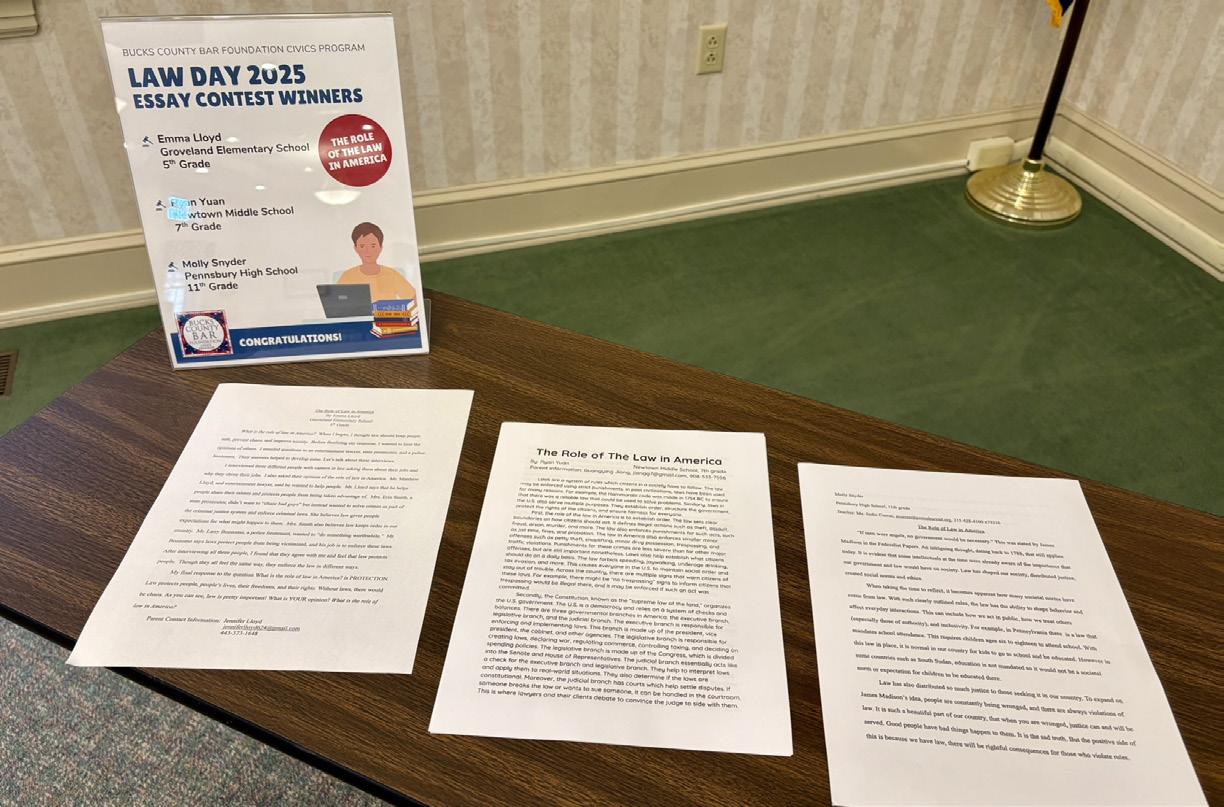
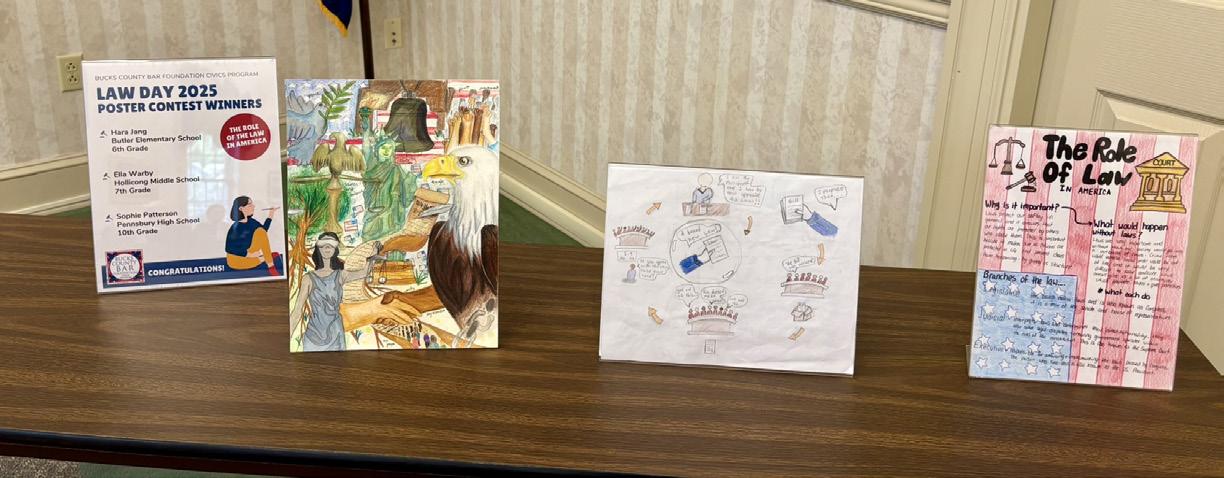
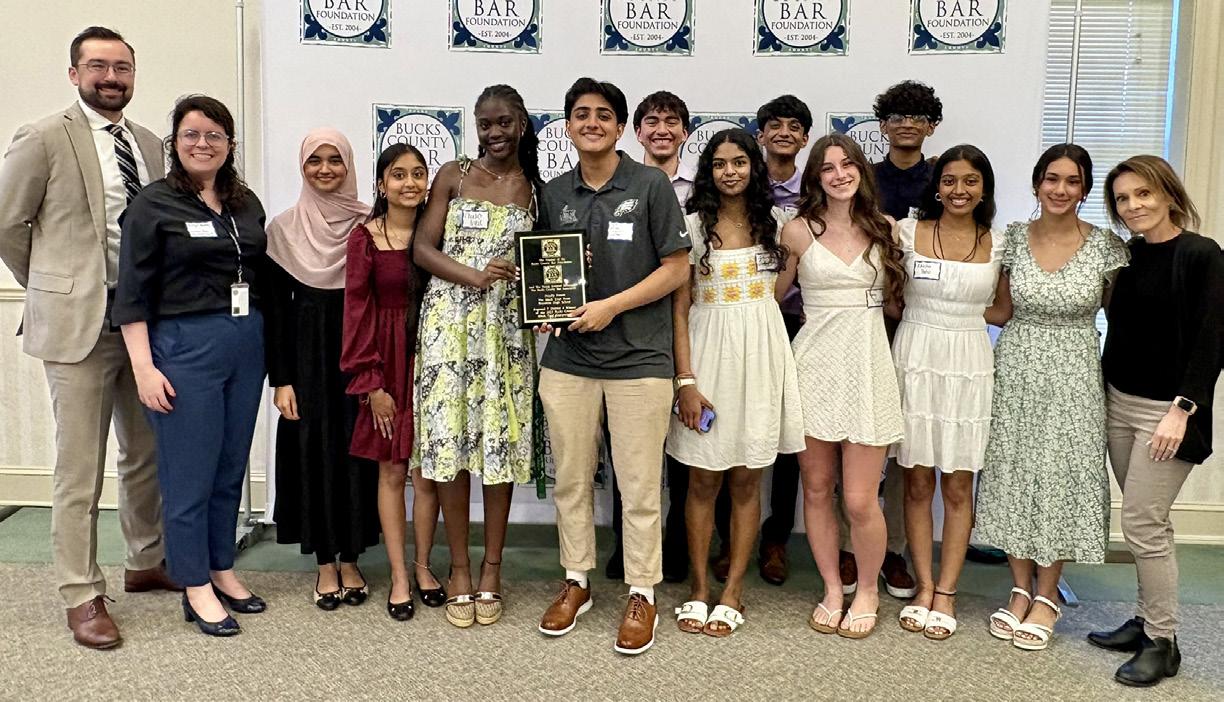




BCBF Golf Outing

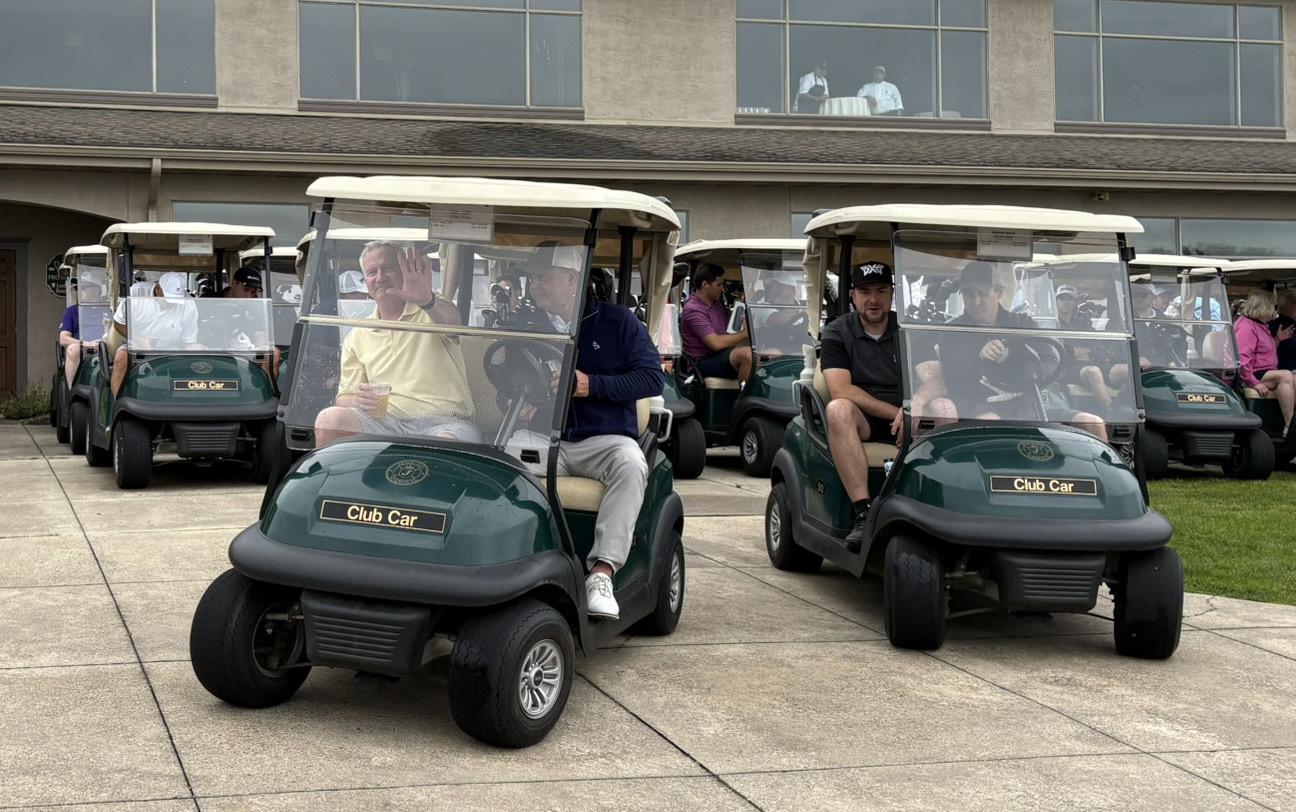
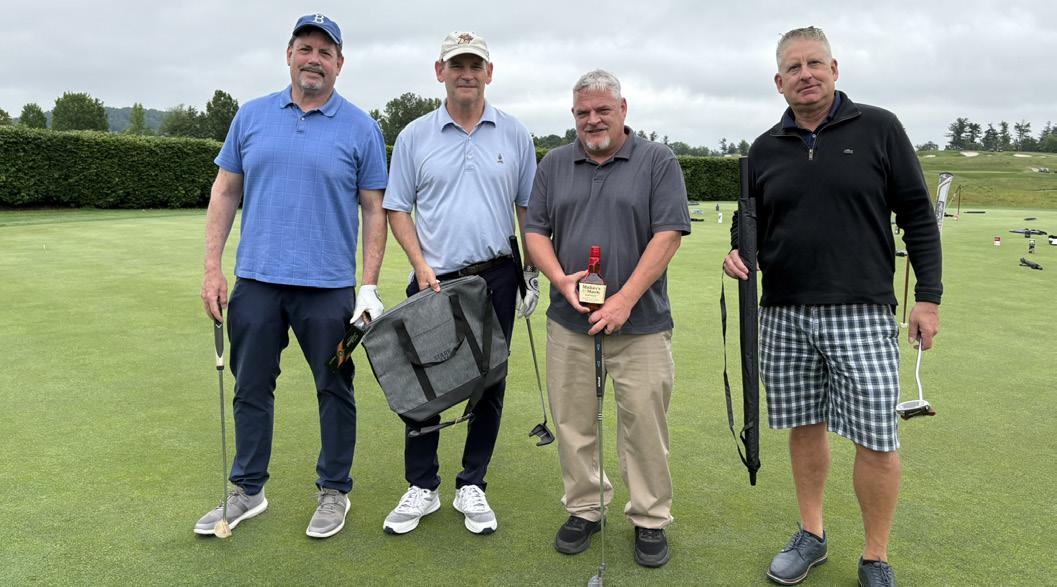



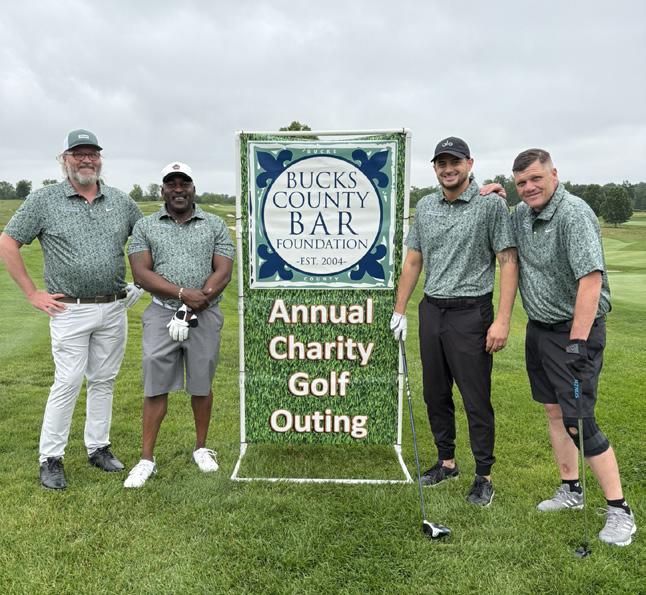


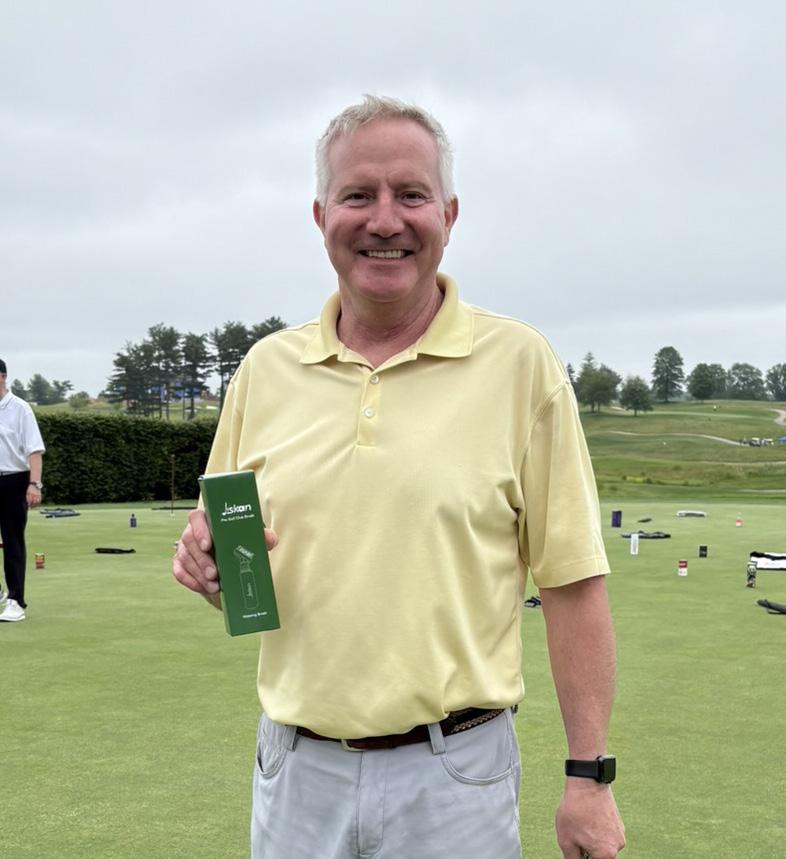
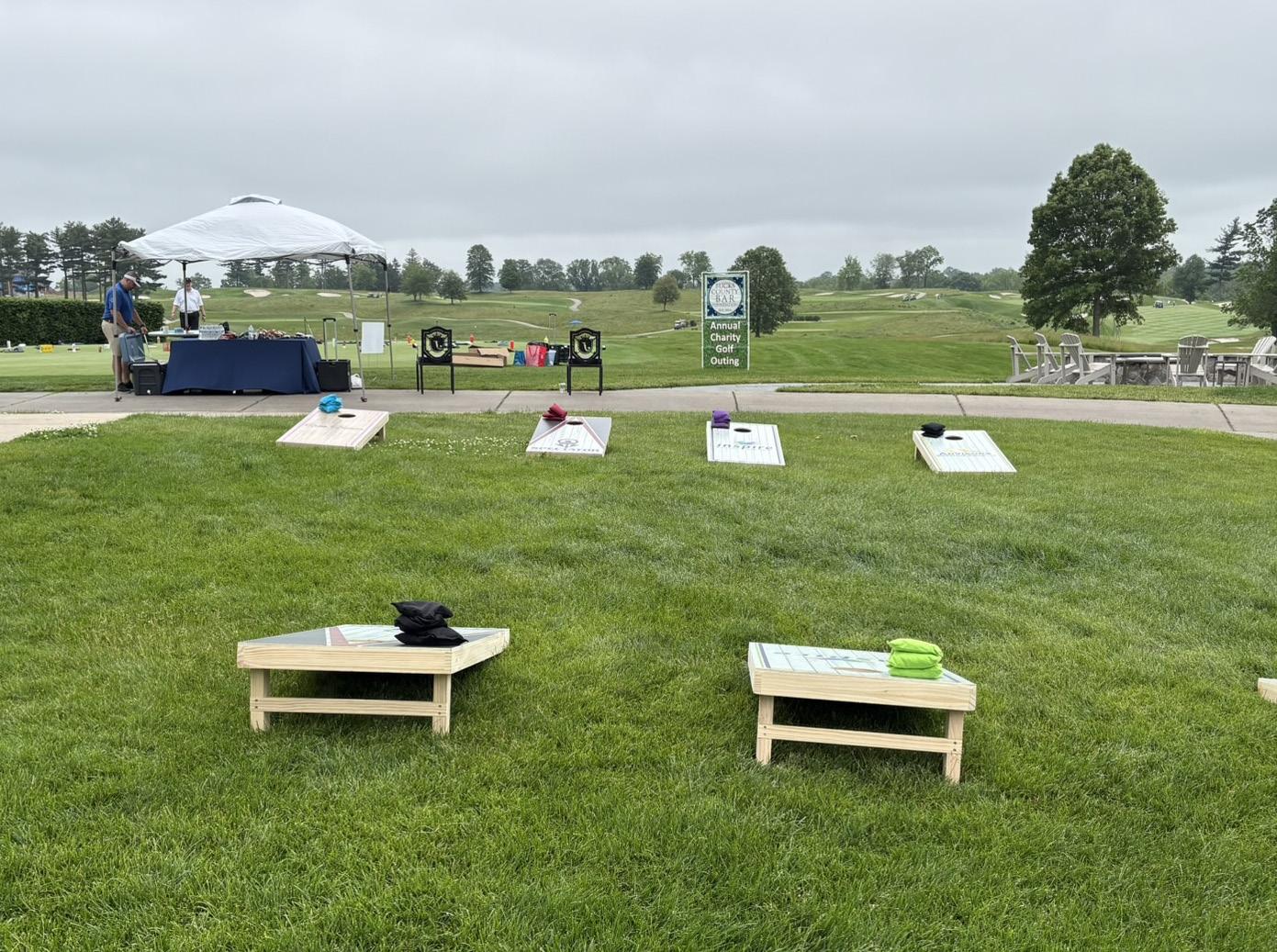

LESSONS LEARNED: A NIGHT WITH CHIEF JUSTICE OF THE PENNSYLVANIA SUPREME COURT DEBRA TODD
By Mindy J. Snyder
ON APRIL 30, 2025 THE WOMEN LAWYERS DIVISION WELCOMED CHIEF JUSTICE TODD TO THE BUCKS COUNTY BAR ASSOCIATION FOR ITS ANNUAL POWER SUMMIT. Chief Justice Todd is the first female elected as Chief Justice in our Supreme Court’s three-hundred-year history. It was an honor and privilege to welcome her to Bucks County.
The evening began with a meet-and-greet with the esteemed judges of the Bucks County Bench along with the Honorable Cynthia Rufe of the Eastern District of Pennsylvania. From the first moment that you meet her, Chief Justice Todd exudes kindness, warmth and intellect—all in one package. She walked into the room and instantly began speaking with each of the judges. After posing for a picture with all of the judges, she suggested taking a picture with just the female judges. By doing this she subtly acknowledged that the event was hosted by the Women Lawyers Division and set the tone for the evening.
During this time I also had the opportunity to speak with Rhonda Campbell, Chief Administrative Judicial Assistant to Chief Justice Debra Todd. The relationship between these two women was one of the most interesting things that I learned that evening. On the first day of each of their first jobs at a law office they were “assigned” to each other. Ms. Campbell was the legal assistant for then Attorney Todd. This began a 36-year relationship that so few are lucky enough to have in life. Ms. Campbell accompanied Chief Justice Todd through her legal positions, elections, as she took the bench in the Superior Court and ultimately the Pennsylvania Supreme Court.
While a female law student—a female lawyer—a female judge—a female managing partner in a law firm—may all seem ordinary and expected to you and I—it was not always ordinary.
As lawyers, it is our obligation, as well as our strength, to learn about the past and to discuss the future of women and the law. Some of the pioneering women of Bucks County include:
• Harriet Mimms—First female judge in Bucks County—1975.
• Diane E. Gibbons—now the Honorable Judge Gibbons— First female district attorney in Bucks County—2000.
• Sandra Schulze Newman—First woman elected to the Pennsylvania Supreme Court—1995.
• Judge Susan Devlin Scott—First and only female President Judge in Bucks County elected as President Judge—2009.
• Chief Justice Debra Todd—First female Chief Justice of the Pennsylvania Supreme Court in our 300-year history— since May 1722.
Of the seven-member panel of the Pennsylvania Supreme Court—we now have three women—Chief Justice Debra Todd, Justice Christine Donohue and Justice Sallie Updyke Mundy.
Today more women are going to law school than ever before. Nonetheless, the number of women holding leadership positions in the legal profession has not increased at the same rate.
Chief Justice Todd spoke of the history of women in the law through an insightful and informative presentation. She then led a panel discussion with Bucks County Court of Common Pleas President Judge Raymond F. McHugh and former chair of WLD, Judge Charissa J. Liller. The questions led to lively discussions as to the role of women lawyers as mentors and influencers.
Not only was it an honor to have Chief Justice Todd in Bucks County, it was an honor to present the members of the Bucks County Bar Association to her. It was a perfect night full of many lessons, laughter and renewed inspiration as to practicing law in Bucks County, Pennsylvania.
Mindy J. Snyder is a partner at Curtin & Heefner, LLP, where she practices family law. Ms. Snyder is also Chair of the Women Lawyers Division of the Bucks County Bar Association.
POWER IN OUR NAMES: HOW CULTURE SHAPES OUR IDENTITY
By Chisom Ihejirika and Prathika Gadde


THERE IS NO DOUBT THAT A NAME CARRIES GREAT WEIGHT. HOWEVER, WHEN A NAME IS UNFAMILIAR, MISPRONOUNCED, OR MISUNDERSTOOD, IT CAN BECOME A SOURCE OF CONFUSION OR EVEN A BURDEN.
The two of us come from different stages in life: Prathika recently graduated from high school and has taken the next step toward a legal career; Chisom is already walking that path as a working professional. And yet, we find common ground in something simple and powerful—a name. More specifically, the shared experience of growing up with names that were often stumbled over, misread, or altered to make others comfortable.

This is not merely an article about pronunciation. It is about empowerment. It is about reclaiming what could possibly make us feel out of place and turning it into fuel for the future. We reflect on our journeys and how through them, we became steadfast in who we are and in showing others that they can do the same.
MY
NAME
IS PRATHIKA
My name is Prathika—pronounced pra-thee-ka. It is of Indian origin and is rooted in Sanskrit. It carries meanings such as “beautiful,” “symbolic,” and “emblem.”
The moment I began to truly understand the uniqueness of my background occurred during third grade—my first school year living in Pennsylvania. Until then, I had grown up in a diverse community. During a class “culture day” in my new school, everyone was asked to bring food that represented us. While many of my classmates brought pizza or tacos, I brought Sambar—a vegetable lentil stew that is often used to accompany rice or lentil pancakes. It is one of my favorite things my mom makes.
When I went to check on it after the event, the 4-quart pot I had brought was still full. Meanwhile, other dishes were empty. I did not know how to process it then—only that I felt intense embarrassment and confusion. That experience stayed with me. It was the first time I realized that the tastes, traditions, and smells that defined me might not always be understood by others. Today, I help cook Indian dishes with my parents. It is a way to connect with them, to preserve our culture, and to prepare myself to pass those traditions on one day.
My name stands out. It always has. And while that used to frustrate me, I now see it as a source of power. Each time I have to correct someone, I advocate for myself. Each time someone stumbles over it, I remind myself that this name is a symbol of my parents’ sacrifice—of their journey from India to the United States.

This name has taught me how to use my voice—and more importantly, why it matters. I have grown into someone who does not merely speak for herself, but for others who may feel unseen, silenced, or judged. I have since learned that others feel this too—like Chisom, whose Nigerian name has taught him moments of pride and empowerment. What was once old discomfort has turned into courage. My name became my first lesson in advocacy.
I have always looked up to my parents—both of whom built careers in healthcare after starting from scratch in a new country. Their resilience and support inspire me to pursue law with the same relentless dedication. My dream is to work in global human rights, potentially with organizations like the United Nations. I do not want to only interpret the law—but to use it to give others a voice. The same way I was able to fight for mine.
MY NAME IS CHISOM
My name is Chisom—pronounced Chee-some. It is of Igbo origin, - southeastern Nigeria, and it means “God is with me.” It is a name full of faith, strength, and promise. I have always considered it a gift from my parents—something deeply rooted in purpose. However, for much of my life, it was also a name that invited hesitation, mispronunciations, and assumptions.
I became used to the pattern early: the pause and then the inevitable attempt—“Chi…chism?” That “Chism” pronunciation was the most accessible version for many of my American teachers and friends. It became a type of fond and familiar nickname—one I did not resent, but one that I was always made sure to correct whenever I was asked about my name’s origin.
Whenever someone expresses curiosity, I explain it. I offer the full pronunciation, meaning, and cultural background. And I do so with pride. Since kindergarten, I have believed there is power in correcting someone—not to shame them, but to invite learning. Sharing the story behind my name is never a burden. It is a bridge.
My name reflects my culture, my family, and my journey. It connects me to generations who came before me—people who endured, sacrificed, and dreamed bigger so I could stand where I do now. Even when mispronounced, it has never shaken my foundation. If anything, it has reinforced it.
Similar to what Prathika expressed, I learned from a young age that I belong in every room I walk into—not only because I have earned my place, but because I carry a name, a lineage, and a legacy with me.
Now, as a practicing attorney, I work in a space where clarity, confidence, and presence matter. I have seen how names can sometimes be viewed as barriers—too unfamiliar to be learned, too “different” to fit in. However, I have also seen how claiming your name, and teaching others to understand it, can open minds and change norms.
My name is my foundation. It tells a story of resilience, of faith, and of limitless potential. And if I can make someone pause—not in confusion, but in curiosity—then I have done more than correct a pronunciation. I have opened a door. One more step toward normalizing names like mine, both in the legal field and in everyday life.
Chisom is an associate attorney at Curtin & Heefner LLP. He graduated from Lincoln University in 2017 and then graduated from Penn State University Law School in 2020. Chisom has experience defending several large institutional clients from liability, contract, and insurance-related cases.
Prathika graduated from Central Bucks High School East with Honors and will attending Northeastern University. She is interning with Curtin & Heefner LLP in Summer 2025. She intends to pursue a career in International Relations Law and work for the United Nations.


Michael D. Burgman CFP®, ChFC®, CLU®, CLTC®
https://burgmanfinancial.nm.com/



PADILLA V. KENTUCKY AND BEYOND:
SBy Cheryl Kracoff and Christopher Serpico Navigating Criminal
Defense for Non-Citizens in 2025
INCE THE UNITED STATES SUPREME COURT DECIDED PADILLA V. KENTUCKY, 599 U.S. 356 (2010), CRIMINAL DEFENSE LAWYERS HAVE UNDERSTOOD FOR OVER A DECADE THAT THE SIXTH AMENDMENT REQUIRES DEFENSE COUNSEL TO PROVIDE IMMIGRATION ADVICE TO DEFENDANTS REGARDING THE DEPORTATION CONSEQUENCES OF PENDING CRIMINAL CHARGES. But with the federal government’s increasingly aggressive approach to enforcing the nation’s immigration laws since the Trump administration took office in January of 2025, lawyers practicing in a variety of legal areas are having to prepare themselves like never before to adjust to the new reality that is facing them and their clients, when non-citizens are involved in the justice system. Considering the

severity of the consequences of deportation, Pennsylvania’s appellate courts have recognized that preserving the client’s right to remain in the United States may be more important to the client than any potential jail sentence. The obligation to explore all available options falls on counsel.
The Biden administration’s approach to removal and deportation allowed for prosecutorial discretion. Under their approach, the government allowed many persons who violated their immigration status to remain in the United States under supervision if encountered by Immigration and Customs Enforcement (“ICE”). The government was mainly concerned with the removal of people with more serious criminal convictions. It also considered the effect that removal would have on family members and the community.
Many foreign nationals have lived in the United States for many years. The current estimate of illegal aliens according to U.S. Department of Homeland Security (“DHS”) in 2022 is 11 million. Without prosecutorial discretion to close low priority cases, more immigration cases proceed through the courts. The result is more orders of removal.
Because there is no way to predict the government’s actions, it is imperative for lawyers to get as much information about their clients involved in these cases as possible.
Before ICE becomes interested in your case, think about possible alternate avenues, including those that are not obvious. It may be to your clients’ advantage to settle, instead of litigating in court. Consider counseling someone about alternatives to filing a PFA or custody matter. All these routine matters may not be so routine when non-citizens are parties to anything filed with the courts. The creation of a record that can be used in a removal proceeding complicates all legal work when foreign nationals are involved. Your understanding of all relevant facts in the case lowers the probability of unintended consequences with ICE.
Many foreign nationals have married, had children, created businesses, broken the law, and left a will in the last forty years. With heightened removal activity, it is a good idea to look at all your cases with an open mind when someone walks into your office. Complex changes in immigration laws that began in the Clinton administration, combined with years of ineffective enforcement, makes it likely clients are uncertain about their immigration status. They may worry about talking to you, or influenced by rumors they have heard. For someone heavily invested and living with family in the United States it is difficult to speak with an attorney. You can offer to get their file through a Freedom of Information Act request through DHS. It can be helpful to combine that with an FBI criminal history check.
Because there is no way to predict the government’s actions, it is imperative for lawyers to get as much information about their clients involved in these cases as possible.
What can be done? Look at the parties. Ask for their identity documents. Is there a passport or birth certificate? Do not be limited by your client. Identify the same information about the opposing party. A brief evaluation will assist you in determining what you can do to get the result your client wants. You don’t want to find out that ICE is waiting for your client in the lobby of the courthouse. There is no area as affected as criminal practice.
In criminal law, the first step in representing non-citizens is to file for the appointment of an interpreter. If the client is incarcerated, an interpreter will be needed to assist in the initial interview. Later in the process, an interpreter will also be needed at the preliminary hearing stage and at the Court of Common Pleas.
The process for obtaining an interpreter is straightforward. Bucks County Court Administration will provide interpreters free of charge, although advance notice of two weeks is generally required. Email requests should be directed to requestaninterpreter@buckscounty.org or call 215-348-6057. (Additional information can be found on the County’s website.)
Competent advice about the best approach in a non-citizen defendant’s criminal case will depend on that individual’s prior criminal record, their immigration status, the status of their immediate relatives, if any, as well as a number of other factors. Although it may be extremely helpful to reach out to immigration law specialists in some cases, that’s not always practical since the Court must approve payment for any costs or fees related to the case. It would be helpful if the County would pay to have an immigration lawyer available, especially to public defender conflict counsel, rather than the piece-meal system that currently exists, but so far that policy has not been adopted.
One of the most frustrating parts of representing non-citizens in criminal court is that their focus is often very narrow. Most criminal defendants are more concerned about the imminent prospect of serving time or getting out of jail than they are about future immigration consequences. Defense attorneys should recognize, however, that many non-citizens may be

operating under the erroneous assumption that a particular conviction will not affect their immigration status. Even though the ultimate decision about how to proceed is up to the client, Padilla and subsequent Pennsylvania decisions interpreting that case make it clear that defense counsel has a constitutional and professional obligation to ensure that the client is properly informed. Clients should be made aware that there may be little an immigration attorney can do down the line if immigration consequences are not addressed during the criminal proceeding. That’s why it is vitally important that criminal defense lawyers consult with an immigration law specialist BEFORE the defendant’s case reaches the Court of Common Pleas.
It is important to note that any criminal conviction, and in some cases, criminal conduct, even if it does not lead to a conviction, could have dire consequences for the immigration status of a non-citizen.
Certain classes of convictions trigger automatic provisions which render a non-citizen deportable and/or subject to mandatory detention. Those categories include:
• Aggravated Felonies: The name is misleading because the offense need be neither “aggravated” nor a “felony” under state law for it to be considered an “aggravated felony.”
• Controlled Substances Offenses: This category encompasses offenses “relating to” a controlled substance as defined by federal law, and it therefore encompasses simple possession and distribution offenses involving substances covered by federal drug schedules. Virtually all drug offenses will result in harsh immigration consequences for most non-citizens. The only exception is a first offense for simple possession of 30 grams or less of marijuana.
• Crimes Involving Moral Turpitude (CIMT): This category is as vague as its title suggests. Generally, the following types of crimes are found to be CIMTs: offenses involving theft or intent to defraud, offenses involving an intent to cause bodily harm, offenses involving recklessness that result in serious bodily harm, and most offenses involving sexual conduct.
• Crimes Against Children: Crimes that encompass any offense involving an intentional, knowing, reckless, or criminally negligent act or omission that qualifies as maltreatment and harms a minor’s mental or physical well-being, regardless of proof of actual injury or harm to the child.
• Other Categories: Includes crimes of domestic violence and firearm offenses.
MYTHS
REGARDING THE IMMIGRATION CONSEQUENCES OF CRIMINAL CONVICTIONS:
• Immigration consequences are only an issue if the person is here “illegally.” WRONG. A non-citizen defendant could face deportation even if the defendant has been in the country since an early age or has been a lawful permanent resident (i.e. “green card” holder), is married to a United States citizen, or has U.S. citizen children.
• Immigration consequences are only an issue if the conviction is a felony. WRONG. Under Pennsylvania law, many misdemeanor convictions could be classified as “aggravated felonies” under immigration law.
• There will be no immigration consequences if the defendant does not serve time; if the defendant serves only a year or less; or if the sentence is suspended. WRONG. Remember that under Pennsylvania’s minimum/ maximum sentencing structure, it is the maximum term of imprisonment imposed that is used to determine whether the sentence will qualify as an “aggravated felony.” Example: 11 ½ to 23 months is a sentence of one year or more. A sentence of 5 ½ to 11 ½ months is not. Furthermore, house arrest with electronic monitoring satisfies the definition of imprisonment.
• If the person is here illegally, it doesn’t matter what they’re convicted of because they’ll get deported anyway. WRONG. A non-citizen without legal status at a particular point could be eligible to obtain lawful immigration status, but many of those avenues could be foreclosed by certain types of criminal convictions. Even if a person will not be able to avoid deportation or removal in the end, criminal convictions could lead to harsh additional consequences such as mandatory detention pending removal.
STRATEGIES FOR HAVING AN OFFENSE CLASSIFIED AS AN “AGGRAVATED FELONY”:
Although it’s by no means a simple task, there are ways that counsel may be able to avoid their client’s conviction for an aggravated felony by creative plea bargaining. The key is to avoid any one count from being punished by a sentence of one year or more. So even if jail time is unavoidable, counsel might:
• Bargain for the maximum sentence being less than one year on a single count.
• Plead to two or more counts, with less than a one-year sentence imposed for each, to be served consecutively.
• Plead to an additional offense that does not have immigration consequences, and take the jail time on that.
• Waive credit for time already served and ask the judge to take that into consideration in imposing a shorter official sentence that will result in the same amount of time actually served in jail as under the originallyproposed sentence.
The changes in the federal government’s approach to the immigration issue is evolving by the week. How it will end is anyone’s guess, but in the meantime it is imperative that anyone practicing in the Bucks County criminal courts keep up to date on the ever-changing case law and regulations pertinent to this field.
Cheryl Kracoff is an immigration attorney with The Law Offices of Cheryl Kracoff, in Jenkintown, PA.
Christopher Serpico is an attorney at The Law Office of Christopher J. Serpico in Doylestown, PA, where he practices primarily criminal defense and wills and estates.

And Now for Something Completely Different…
By Sarah A. Steers
We’ve all heard the snotty aside, “Can’t do math, go to law school.” It’s a ridiculous thing to say, but perhaps I’m indignant because I’m embarrassed. I put in a few semesters of calculus during my undergrad, but as soon as I hit the real stuff (“Calculus in Three Dimensions;” “Differential Equations”), I turned tail and ran.
Fast forward to middle age, and I’m now watching “Numberblocks” with my kid. Produced by the BBC in conjunction with the National Centre for Excellence in the Teaching of Mathematics, it makes math basics so accessible and obvious, I wonder if I could have been better at the subject if I had had this sort of educational foundation. Each number has its own personality and while you’re laughing at the ridiculous antics, you’re also learning math essentials.
I grew up in the age of memorization. If you were one of those kids who understood the theory behind the practice, that was great. Ultimately, though, the goal was to memorize and regurgitate.
So consider my mind blown when Numberblocks taught me that a square number visually resembles an actual square. Two squared equals four – two “blocks” tall by two “blocks” wide. That’s a square! And any number raised to the third is an actual cube. Two to the third equals eight – two “blocks” tall by two “blocks” wide by two “blocks” deep. That’s a cube! I memorized all of this and never realized that a square number is a square and a number raised to the third is a cube!
My mind is blown on an episodic basis. I’m learning in real time with a pre-schooler.
Maybe this is all so obvious to the reader. And maybe there are a few folks glancing at this who now doubt my intellect. (That’s fine; if you prime me with a few drinks, I can tell you even more embarrassing stories about ways I’ve failed in the face of the obvious.)

But everyone’s had a situation in which they were written-off before they even had a chance to try. Maybe I wasn’t too dim-witted to learn upper-level math – maybe I just needed some patience. I don’t think I need to try my hand at calculus again. But I will most certainly encounter another learning struggle in the future. And when that happens, I’ll show myself some grace and find alternate ways to gain confidence and knowledge.
Sarah A. Steers is an attorney with Clarke Gallagher Barbiero Amuso & Glassman Law.

SPOTLIGHT ON LEGAL AID OF SOUTHEASTERN PA’S BRISTOL OFFICE:
Serving the legal needs of low-income residents in Bucks County
By Marion Hoffman Fraley, LASP Communications Director
As the county seat, Doylestown is often considered the hub of the Bucks County legal community. Yet 28 miles away in Lower Bucks County, Legal Aid of Southeastern PA (LASP) has an important presence in Bristol. There, attorneys help low-income individuals throughout the county overcome legal issues including eviction, bankruptcy, elder law, unemployment compensation, and more. And Legal Aid’s presence in Bristol predates LASP’s founding in 2001, going back 50 years.
LASP’s May 13 Open House provided an opportunity to take a closer look at free civil legal aid in Bristol, the important work done by LASP staff, and how volunteers might get involved.
In an interview following the Open House, Rhonda Sherrod, Bristol Managing Attorney, shared insights on legal aid’s role in the community. “Justice is more than a lofty concept— it is everyday life—the bread and butter of obtaining advance care documents, asserting tenants’ rights, filing bankruptcies, making sure the law is followed by a creditor in a debtor lawsuit,” said Rhonda said. “Simply, we are here to provide civil legal advice and representation where possible at no charge to our client. Legal Aid doesn’t act in a vacuum. At the end of the day, we are here along with other community partners—the courts, the bar association, social service agencies and people who volunteer their time and donate to the cause as part and parcel of a safety net that strives to make life a little easier, maybe a little better for our community.”
In remarks at the Open House, Executive Director Shawn Boehringer noted that at the core, LASP’s Bristol Office helps Bucks County residents with high-stakes civil legal issues who cannot afford an attorney. “Our office here really focuses on basic human needs and basic human rights,” he said.
The hurdles faced by people without representation cannot be underestimated.
Rhonda noted, “Civil legal services can be expensive and not always accessible to those who need them. We recognize it
can be stressful and downright frightening to be named a defendant in a lawsuit by a creditor or to face the threat of eviction or even just to be called to go to court when you’ve never been there before.”
50 YEARS OF LEGAL AID IN BUCKS COUNTY
LASP was formed 24 years ago in 2001 when predecessor legal aid organizations in Bucks, Chester, Delaware and Montgomery Counties joined forces. Legal aid has a 50-year history in Bucks County starting with the Bucks County Bar Association’s Pro Bono Committee. The committee began taking some cases, eventually hired a staff attorney, and initially worked on a very small scale. In 1974, the Legal Services Corporation (LSC) was created, and the committee pursued LSC’s federal funding to expand services. Later, the committee also sought funding from the state organization, the Pennsylvania Legal Aid Network (PLAN), which disburses funds from the Interest on Lawyers’ Trust Accounts (IOLTA), the Access to Justice Act, and the Pennsylvania Department of Human Services.
Legal Aid—first as Bucks County Legal Aid Society (BCLAS) and then LASP—has an office in the building at the Bucks County Office Center at 1230 Veterans Highway, Bristol, PA, where it has resided for 30 years or more, Shawn said. The first Bristol Office was initially located in the borough, but a fire necessitated a move. Elizabeth Wood Fritsch served both BCLAS and LASP as executive director, retiring in 2018.
PRO BONO VOLUNTEERS WELCOME: EVICTION PREVENTION PROGRAM IN MORRISVILLE & MORE
The Bucks eviction prevention program launched in July 2023 as a partnership between the Bucks County Bar Association Pro Bono Committee, LASP, and the Bucks County Opportunity Council, with support from the Bucks County Department of Housing & Community Development. The program provides legal representation to tenants who do not have an attorney and who volunteer to participate, while also connecting them with social services. Research shows that tenants with legal representation have significantly better outcomes in landlord-tenant court.

Eviction court is held on Thursdays at 1 p.m. Magisterial District Court 07-1-11 in Judge Corryn Kronnagel’s courtroom, at 31 E. Cleveland Avenue, Morrisville, PA. Evictions can have devastating short- and long-term impacts on renters and their families, including homelessness, negative health outcomes, and limitations on future housing opportunities.
Other volunteer opportunities include Protection from Abuse (PFA) court in Doylestown, held weekly; simple wills; no-asset divorces; and Chapter 7 bankruptcies.
MORE LEGAL AID SERVICES
In addition to services provided by the Bristol Office, legal aid services available across the county include other LASP practice areas. The Doylestown Office helps people with Protection from Abuse (PFA) orders, child custody, dependency and family law issues.
LASP’s regional units help Bucks, Chester, Delaware & Montgomery County residents with mortgage foreclosure, tax sales, record-clearing, and veterans benefits and discharge upgrades. LASP is also completing a grant from LSC which addressed long-term legal issues caused by Hurricane Ida in 2021.
IMPACT OF LEGAL AID
At the Open House, several speakers shared insights on the impact of legal aid on the court system, including the Hon. Raymond F. McHugh, President Judge, Bucks County Court of Common Pleas; Robert J. Harvie, Jr., Chair, Bucks County Board of Commissioners; and Melanie J. Wender, President-Elect, Bucks County Bar Association, LASP Board of Directors member, and a partner at Antheil, Maslow & MacMinn, LLP
Judge Raymond McHugh noted the importance of pro bono volunteering in PFA court and other areas and the difference that legal aid representation makes in the judicial process and courts. “I appreciate everything that this organization, Legal Aid, does for the courts,” he said.
Commissioner Robert Harvie noted the complexity of the paperwork and legal system, and the value of legal representation provided by legal aid in often high-stakes matters for people who cannot afford an attorney: “Thank you for the work you’re doing, for keeping people in their apartments and their homes, for keeping people safe, ... filling out protection from abuse orders, for helping them get access to the benefits they are entitled to—that sometimes they don’t even know they’re entitled to, and if they know they’re
“Legal Aid doesn’t act in a vacuum. At the end of the day, we are here
along with other community partners—the courts, the bar association, social service agencies and people who volunteer their time and donate to the cause as part and parcel of
a safety net that strives to make life a little easier, maybe a little better for our community.”
— Rhonda Sherrod, Bristol Managing Attorney
supposed to have them, they don’t know how to make sure they get them.”
Melanie Wender remarked: “We are so fortunate at the Bar Association to have an excellent partnership with legal aid. We partner with them for the Protection from Abuse program. . . . Our Foundation’s goal is access to justice. That is exactly what Legal Aid does. Legal Aid provides access to justice for those who cannot afford to obtain legal counsel, for those that are facing... what we would consider elimination of their basic rights, such as eviction, losing their housing... There are even issues with utility payments... I love being a board member of Legal Aid. Every time I come to a board meeting, I get to really see the excellent, amazing work that all the people who work at Legal Aid do.”
Melanie also noted, “Legal Aid is a 501(c)3 organization, and your donations are always welcome.” She thanked former Executive Director Elizabeth Wood Fritsch and Shawn for their leadership.
LASP appreciates the longstanding partnership with and support from the Bucks County Bar Association and Foundation!
To learn more about pro bono volunteering in Bucks County, visit lasp.org/pro-bono, or contact Megan Reinprecht, Veterans Advocacy Project Staff Attorney and Bucks County Pro Bono Coordinator, at 484-206-8101 or mreinprecht@lasp.org, or Erika Becker, Pro Bono Director, at 484-245-2183 or ebecker@lasp.org.
Marion Hoffman Fraley is the Communications Director for the Legal Aid of Southeastern Pennsylvania.


PENNSYLVANIA’S ACT 146: A Heartening Step Forward in Protecting Domestic Violence Survivors and Their Pets
By Madeline Richard
IN A SIGNIFICANT AND COMPASSIONATE MOVE, PENNSYLVANIA HAS ENACTED ACT 146 OF 2024, A BIPARTISAN LAW THAT EXTENDS PROTECTION FROM ABUSE (PFA) ORDERS TO INCLUDE COMPANION ANIMALS. Effective January 17, 2025, this legislation empowers judges to prohibit abusers from harming, threatening, or contacting a victim’s pet, recognizing the profound bond between survivors and their animals.
Act 146, originally House Bill 1210, was the culmination of a nearly four-year project for State Representative Christinia Sappey (D – Chester County) and State Representative Natalie Mihalek (R – Allegheny and Washington Counties). It was passed by the House of Representatives in 2023, then by the Senate in early November of 2024, and signed by Governor Josh Shapiro in late November 2024 to become Act 146 of 2024.
BRIDGING A CRITICAL GAP
Previously, Pennsylvania’s PFA orders safeguarded victims, their children, parents, other adult household members, and their homes, but lacked explicit provisions for pets. Should a defendant subject to a PFA order need access to their home to obtain personal property, they would simply arrange with their local sheriff or police department to go to the residence and collect their belongings, perhaps including the family pet. This oversight caused many PFA cases to become contentious, and quite literally turn into dogfights. Now, Act 146 allows courts to grant temporary ownership of a companion animal to the petitioner and restrict the defendant from any form of interaction with the animal.
This change can be found in two places. First, 23 Pa. C.S.A. § 6108(a)(9.1) allows courts to grant “temporary ownership rights over a companion animal and direct the defendant to refrain from possessing, contacting, attempting to contact, transferring or relocating the companion animal or contacting or entering the property of the any person sheltering the companion animal.”
Second, 23 Pa. C.S.A. § 6108(e) allows courts to extend protection to companion animals if the court finds that the defendant engaged in a “pattern or practice” that demonstrated a continued risk of harm to the companion animal. This change acknowledges that abusers often exploit the emotional connection victims have with their pets, using threats or harm to exert control.

COMPANION ANIMAL DEFINED
As defined by 23 Pa. C.S.A. § 6108(j), a “companion animal” is any animal that is not used in a commercial setting which is “owned, kept, leased, possessed or held by the petitioner or respondent or a minor child of either.” Stated plainly, victims of domestic violence may seek protection and the court may grant ownership rights of household and family pets.
EMPOWERING SURVIVORS AND LOOKING AHEAD
By including pets in PFA orders, Act 146 removes a significant barrier that often prevents victims from leaving abusive situations. Survivors no longer have to choose between their safety and the well-being of their loved animals. This legal advancement offers a sense of security and peace of mind, enabling more individuals to seek the protection that they need.
With the enactment of Act 146, Pennsylvania joins 37 other states, Washington, D.C., and Puerto Rico in recognizing the importance of protecting pets in domestic violence cases. This law not only safeguards animals but also strengthens the support system for survivors, reflecting a compassionate approach to justice and healing. But, it also begs the question, what’s next? Is Act 146 just the first of many acts to pass regarding disputes over pets in domestic courts? Under the current law, “pet custody” is not a legal term; rather, pets are
considered “personal property.” That could change soon should the Pennsylvania Senate pass House Bill 1108 of the 2023-2024 regular session.
House Bill 1108 would enable a divorcing spouse to litigate ownership of a family pet through equitable distribution. If a court determines who gets the pet, the proposed legislation would require the court to consider six factors to make its decisions, including: whether the pet was acquired prior to or during the marriage, the basic daily needs of the pet, the party who generally facilitates veterinary care for the pet, the party who generally provides the companion animal with social interaction, the party who generally ensures compliance with the state and local regulations regarding the pet, and the party who has the greater ability to financially support the pet. While House Bill 1108 remains pending and cannot help those currently in the process of a divorce, Act 146 affords some relief for those who seek to protect their pets from domestic violence.
Madeline Richard is an associate with Bloom Peters, LLC, in Maple Glen, PA, where she practices family law. Ms. Richards previously served as law clerk to the Honorable Judge James M. McMaster, the Administrative Law Judge of the Family Law Division for the Bucks County Court of Common Pleas
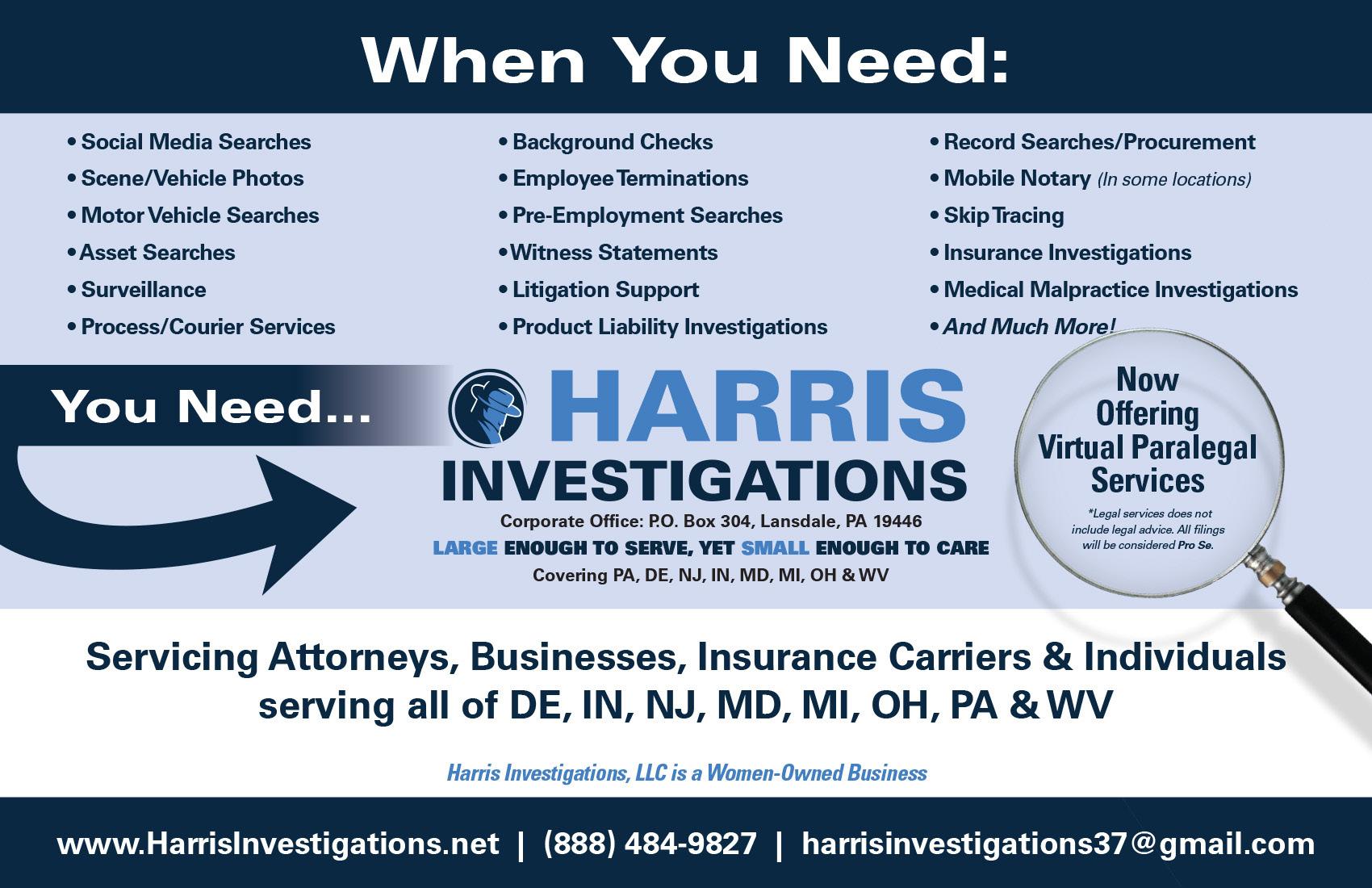

NEW MEMBER PROFILE
Abraham V. Frangie, Associate, Anthiel, Maslow & MacMinn, LLP
As part of the Writs’ continuing mission to introduce new members to the Bucks County Bar Association, we will feature a regular column on a new member. This edition’s profile is on Abraham V. Frangie.
The Writs: If you are from Bucks County, what made you decide to live or work here? If you are not from Bucks County, what about the area made you interested?
Not so much a what, more of a who. As the old saying goes: “I met a girl.” She is from Bucks County (and is Bucks County’s number one fan), but we met when she was also in school in New York. She had always intended to come back to Bucks County to start working in her family business, and it was an incredibly easy decision to move to such a beautiful, green, and scenic place.
The Writs: What made you want to become an attorney? Who were your role models or inspirations and why?
I had never considered becoming an attorney growing up. I went to college for Homeland Security, Emergency Preparedness, and Cybersecurity (yes, that is the full name of the major), and had envisioned a career in the national security apparatus. However, I debated heavily in college, and one night after a debate, my former debate partner – who graduated college the year before and was already in law school – called me and talked me into taking the LSAT. The rest is, as they say, history.
The Writs: Describe a day in the life of your practice.
Because I split my time between two practice groups— litigation and corporate—the schedule of my day is really set as developments and matters pop up. Both practice groups have elements to them that require reactionary responses to changing circumstances, so a quiet day in the morning can become a day with rounds of emails and conference calls negotiating a sales agreement with opposing counsel by 3:00pm. I enjoy the fast-paced nature of both areas, and it’s a great benefit as a new attorney to be exposed to so many procedural and substantive topics regularly.
The Writs: What was the most interesting case or project that you have worked on in your career?
My career, which has spanned a whopping three months at the time of this interview, has been packed full of interesting cases. Within the last month I had my first closing on a deal; and we had a new client come in looking to purchase a local business on a compressed timeline of only a few weeks. I enjoyed helping to shepherd that sale along from start to finish and gained a better understanding of how each step in the transaction process fits together. As an extra bonus, my first closing was in-person, which was especially rewarding knowing how few closings are done in person these days.
The Writs: What made you want to go into your specific field of practice, and where do you see yourself in five years?
I wanted to go into the corporate area because I’m interested in helping local companies grow and assisting as issues arise throughout their long-term existence. Litigation serves a couple of purposes: the first is a crash course in Pennsylvania state and court procedure as a New York transplant; and second, to continue expanding my argumentation and writing skills. In five years, I want to be right where I am: learning from and working with the best!
The Writs: What is your favorite fictional character from the legal industry? What is your favorite movie that portrays the legal profession and why? Judge Judy (although Judy Sheindlin is, indeed, very real!). I spent a lot of time growing up listening to her televised small claims arbitrations and picked up some important lessons. The first: in the context of questioning a party who was, perhaps, attempting to pull a fast one, Judge Judy said to the party something to the effect of “It doesn’t make sense, and if it doesn’t make sense, then it isn’t true.” Other great lessons relate to the importance of preparedness of documentation to bolster your argument; not to interrupt your opponent when they are discrediting themselves; and that telling the truth doesn’t usually require great pause and reflection before answering.
The Writs: What has been your favorite place to travel and why?
Seoul, South Korea. Amazing street food, beautiful dynastic palaces, parks right in the middle of the city, and some of the kindest and most friendly people you will ever meet
The Writs: What advice would you give a law student to help prepare for a career in this area, and specifically in your area of practice?
Learn the “intangible” skills that aren’t taught in law school. I would define these skills as the interpersonal skills that I notice so many in my generation struggle with. You will apply to firms and other employment that require a certain number of years’ prior experience they want a candidate to have, but you can slip past that requirement with a command of professionalism, eye contact, independence, and organization.
The Writs: What do you do when not practicing law?
Woodworking, photography, camping, going to the barn, and general exploration of Bucks County.
The Writs: What is your favorite bar or restaurant in Bucks County?
Piper Tavern for drinks; Plumsteadville Inn for their soft pretzels; Cross Culture for the Chicken Tikka.
ATTORNEY DISCIPLINARY AND ETHICS MATTERS
consultation and expert testimony in disciplinary matters and matters involving ethical
bar admissions and the Rules of Professional Conduct
James C. Schwartzman, Esq.
• Judge, Court of Judicial Discipline
• Former Chairman, Judicial Conduct Board of Pennsylvania
• Former Chairman, Disciplinary Board of the Supreme Court of Pennsylvania
• Former Chairman, Continuing Legal Education Board of the Supreme Court of Pennsylvania
• Former Chairman, Supreme Court of Pennsylvania Interest on Lawyers Trust Account Board
• Former Federal Prosecutor
• Selected by his peers as one of the top 100 Super Lawyers in PA and the top 100 Super Lawyers in Philadelphia
• Named by his peers as Best Lawyers in America 2022 and 2015 Philadelphia “Lawyer of the Year” Ethics and Professional Responsibility Law and Legal Malpractice Law
1500 Market Street, East Tower, Suite 1800 • Philadelphia, PA 19102 (215) 751-2863

The Bucks County Mediation and Arbitration Center (BCMAC) is owned and operated by Barbara N. Lyons, Esq. She is certified, skilled and experienced in neutral arbitration, mediation and case evaluation. Attorneys work closely with Barbara from initial contact to the conclusion of their case.
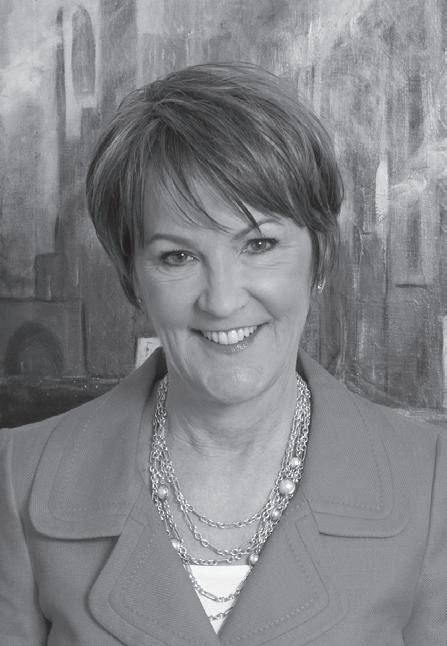
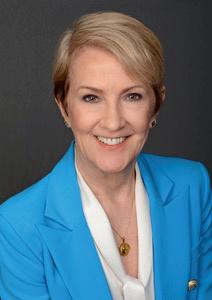
BCMAC is a full-service ADR provider addressing issues involving, but not limited to:
•Contract and real estate disputes
BCMAC is a full-service ADR provider addressing issues involving:
•Medical malpractice
•Equity matters
• Personal injury premises and product liability
•Employer/employee disputes
•Underinsured and uninsured motorist cases
• Commercial and insurance matters
•Business mergers and dissolutions
• Real estate and equity disputes
•Personal injury
•Municipal matters
BCMAC provides cost-effective and real-world solutions for attorneys and their clients, business and industry professionals.
BCMAC provides cost-effective and real-world solutions to attorneys, consumers, business and industry professionals, employees, employers and government agencies.
Bucks County Mediation and Arbitration Center
The Farm, 220 Farm Lane, Doylestown, PA 18901
For more information call (215) 340-7655 or visit www.bcmac.org.
Bucks County Mediation and Arbitration Center
The Farm, 220 Farm Lane, Doylestown, PA 18901
For more information call (215) 340-7655 or visit www.bcmac.org.
MANAGING PARTNER’S CORNER
Chief Cook and Bottle Washer: The challenges of managing a small suburban law firm
An interview with Jonathan Russell of Drake, Hileman & Davis.

The Writs: Can you explain how the Firm started? Drake, Hileman & Davis was formed out of a friendship, tied to faith and family. In the early 1980s, Jeff Drake and Pete Hileman were both practicing attorneys in Bucks County. With children the same age and being part of a common faith community, they figured, why not form a practice together. After doing so in 1985, they were soon joined by Len Davis, whom Pete knew from Villanova Law School. From that initial stage, each partner became responsible for a particular area of the law. Pete handled criminal defense, insurance defense, commercial litigation, and personal injury work. Jeff primarily handled the real estate, zoning, domestic, and non-profit work. Len handled the business, banking, corporate, and estate/trust work. It was a good mix of skill sets for a suburban practice.
The Writs: How would you describe the Firm’s culture?
The firm’s culture has always been to view our practice as something we do, not who we are. The practice of law is a means to an end, not the end. Within this culture, we have strived to have a healthy work/life balance, trusting that each of us is working as hard as the other. Law firm management guru Ellen Freedman once commented that our “model of equality works wonderfully, where all partners are demographically close, culturally similar, where all share the same work ethic and remain voluntarily accountable to their fellow partners.”
The Writs: What is the Firm’s governance model?
Structurally, we operate via a board of directors, who are elected by the shareholders. While I have the title of president of the corporation, the reality is that most policy and management decisions are made by consensus. While this model has its drawbacks, regarding some degree of inefficiencies, to the extent that we can agree on the essential issues, give liberty in the non-essentials, and in all things give each other a measure of grace, the model has worked for us. The key is recognizing that you don’t have to have a strong opinion regarding every decision.
The Writs: Over the 40 years the Firm has been in existence, what has been the biggest challenge?
The biggest challenge was probably drafting a workable buy/sell agreement. The ability of small firms to be able to pass on the practice to the next generation of attorneys is one of the hardest tasks to address. Firms that can’t do it won’t last. You need to be able to bring in new equity partners while also compensating those partners who retire. Our buy/sell agreement probably went through more than a dozen revisions over a decade.
The Writs: What have been the biggest changes you have seen in the practice over the years?
When I first started with the firm 32 years ago, we had a carousel at the receptionist’s desk with carbon paper phone messages. We were completing time slips by hand. Our advertising budget was primarily consumed by the cost of ad placement in the phone book, especially the back cover of the Lehigh Valley Yellow Book. Technology has dramatically changed our daily practice, from client communication to tracking billable time, to marketing.
The Writs: From a systems standpoint, what is one thing that small firms should do right from the start?
While it is important to develop a formal written policy for all attorneys and staff, and to have a unified file management system, I think we have benefited the most from implementing a good retirement plan. Sometimes, you might think that as a small firm, having a robust 401(k) and profit-sharing plan might not be possible, but the set-up cost and maintenance costs are nominal given the benefit that can be achieved over time. Through our profit-sharing plan, we have been able to remain an attractive place to work, even during the “great resignation.” Additionally, our profit-sharing plan engenders a spirit of cooperation instead of competition regarding the success of the firm.
Jonathan J. Russell is a director/shareholder at Drake, Hileman & Davis, P.C., where he practices civil litigation.

•
•
•
•
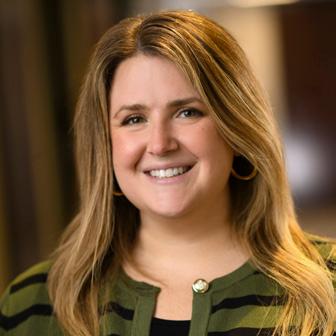

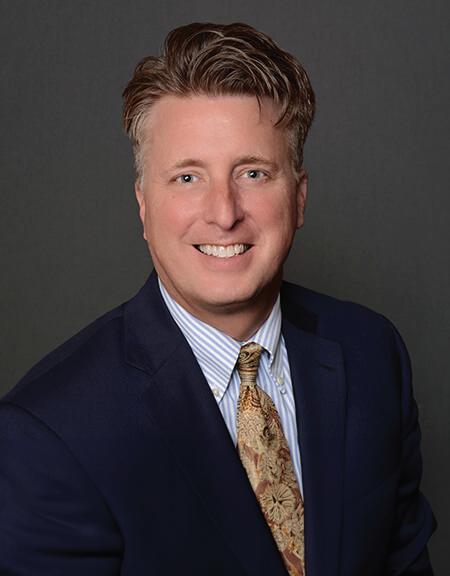

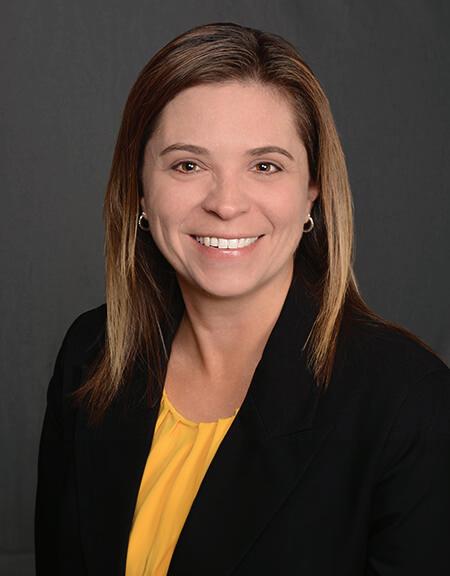


Zachery Bonner and Spencer Krawitz LAW CLERK PROFILES
The Bucks County Bar Association is extremely proud of its members who serve as judicial law clerks. Many of these clerks are newly minted from law school, and display incredible promise to serve as future leaders of the Bar Association. As a recurring column, the Writs will feature profiles on a few members of the current clerkship class. In this edition, we are proud to present Zachery Bonner, law clerk to the Hon. C. Theodore Fritsch, Jr, and Spencer Krawitz, law clerk to the Hon. Stephen A. Corr.
Zachery Bonner
The Writs: Tell us about yourself.
I am Judge Fritsch’s law clerk. I went to law school at Widener University Delaware Law School. Prior to law school, I worked at a law firm in Montgomery County as a file clerk and at Parx Casino in the HR department. I am a fraternal twin, and my brother is also an attorney.
The Writs: What made you decide to work in Bucks County?
I am from Delaware County, but I have family that lives in Bucks County. I spent time in Doylestown at the Justice Center during my law school internships. Bucks County is a wonderful place to live and work.
The Writs: What made you want to become an attorney? Who were your role models or inspirations and why?
Both my brother and father are attorneys. I have been surrounded by legal professionals my entire life and have always dreamed of one day joining my family members in their chosen profession.
The Writs: Describe a day in the life of a law clerk in your judge’s chambers.
Each day starts with a meeting with Judge Fritsch. We touch base about active writing and research assignments and discuss the cases that will be coming before the Court that day. The Orphans’ Court hears many different types of cases and being present in Court for a variety of matters is a great learning experience for a law clerk. Typically, each day ends with a recap of the day’s hearings. I occasionally assist Judge Fritsch in reviewing the cases for the next day.
The Writs: What was the most interesting case that you have worked on for your judge?
The most interesting case I have worked on for Judge Fritsch was a will interpretation case. The will in question was drafted using an online software and AI assistant. The final product was
a will that contained language that was ambiguous. The parties disputed the effect of the language on the distribution of the testator’s estate. It was up to the Court to determine if the will itself could be modified to effectuate the intent of the testator or had to remain as it was written. It was a case that brought well-settled case law to bear on a problem that has only recently become prevalent with the advances of technology and estate planning services.
The Writs: What type of law do you want to go into after your clerkship, and where do you see yourself in five years?
I am very interested in estate planning and estate litigation. I also find that guardianship work is very important. The Orphans’ Court plays an integral role in safeguarding vulnerable populations in our community. In five years, I hope to be practicing as an estate litigator.
The Writs: What is your favorite fictional character from the legal industry?
My favorite fictional character from the legal industry is Jack McCoy from the original Law & Order. I have spent an unreasonable amount of my life watching and rewatching Law & Order. I think his character is a very balanced representation of attorneys in fictional media.
The Writs: What has been your favorite place to travel to and why?
I am very fond of mountains and forests. My favorite travel destination is Lake Placid, New York. It’s a very cozy place that has plenty of activities for tourists to participate in year-round. I highly recommend traveling there if you are looking for a quiet, serene getaway.
The Writs: What advice would you give a law student to help prepare for a clerkship in Bucks County?
The best piece of advice I could give any prospective law clerk is to be open and ready to learn. The legal profession, like many others, is a profession of constant learning. Whether it

involves writing skills, analysis of case law, or understanding the ins-and-outs of various court proceedings, I believe that having an open mind and positive attitude is the best approach to maximize the benefits of a clerkship.
The Writs: What do you do when not working as a clerk?
I love to listen to audiobooks. I am a big fan of live music. I try to attend shows as often as I can. My favorite venue is the Union Transfer in Philadelphia, as the tickets are cheap and it’s relatively easy to get to!
The Writs: What is your favorite bar or restaurant in Bucks County?
My favorite restaurant in Bucks County is Lilly’s Gourmet. It is one of my favorite places to take a lunch out of the office. My favorite dish is their Chicken Tortilla Grain Bowl.
Spencer Krawitz
The Writs: Tell us about yourself. Hi everyone, I’d like to first start by saying how grateful I am for the opportunity to work for and learn from the Honorable Stephen A. Corr. I graduated from Plymouth Whitemarsh High School in 2016 and went on to graduate from Penn State in 2020 with a bachelor’s degree in Broadcast Journalism and a minor in Political Science. Growing up I played just about every sport you could, but the biggest emphasis was on baseball. While playing, I also spent many of my nights each week volunteering as an umpire for Whitemarsh Little League and was eventually named Chief Umpire there. Afterwards I was asked to coach a summer travel team. I graciously accepted and coached a group of kids for 4 years from ages 13 to 16, ending my coaching stint by winning the Pennsylvania State Championship for Connie Mack ‘A’ League.
A fun fact people always find interesting about myself is that I am one of six kids. Let me give a brief breakdown of my family dynamic: I am a twin with my brother Alex; we are the oldest. Next (unbelievably) is triplets, that would be my two sisters Valerie and Sammy, and my brother Michael. Lastly, the solo, my youngest brother Matthew. Growing up with such a large family has its perks—it doesn’t make traveling very easy—but we all always have each other.
I always strive to work hard and believe that if you are going to do something, you might as well give 100%. I have managed to surprise myself along the way and am continuously looking forward to what the future holds.
The Writs: What made you decide to work in Bucks County?
I am from and live in Montgomery County, Pennsylvania. Truthfully, this job is my first taste of Bucks County. The reason I am here is simple, though. An amazing job opportunity was offered to come and be a law clerk for the Honorable Stephen A. Corr. An opportunity for me to learn, grow, and further my career. So, while I do not live in Bucks, I am excited to be working here at least until summer 2026!
The Writs: What made you want to become an attorney? Who were your role models or inspirations and why?
This is somewhat of a broad question. I can’t say that there was any one thing that made me want to become an attorney. I do come from a family of attorneys. My dad, Jeff Krawitz, is a partner at Stark and Stark and focuses on medical malpractice. My Uncle, Art Krawitz, has his own personal injury and worker compensation firm in Delaware. Lastly, my Aunt, Carol Verlin, is a family law attorney in Philadelphia and its surrounding counties. However, their jobs as attorneys never had an overriding influence on me to become an attorney. I have always been fascinated by unique stories and complex issues. I also believe earning a law degree opens a lot of doors, not just in the legal world, but other fields as well. Growing up I only wanted to be a sports agent or general manager of a professional sports team, preferably football or baseball. I, in part, went to law school because I wanted to learn the art of negotiation and the law of contracts. I still envision myself doing something related in the future, but I ultimately wanted to become an attorney because it comes with an important responsibility to do your best and hold yourself to the highest possible standard, and that is always what I strive to do.
The Writs: Describe a day in the life of a law clerk in your judge’s chambers.
A day in the life as Judge Corr’s law clerk is a thrilling rollercoaster with a few unexpected twists and turns. Our focus area is Criminal; however, as a Bucks County Law Clerk we also assist the Court with other tasks to ‘keep the wheels of justice moving.’ So, although our emphasis is on criminal law, I still work on civil cases regularly, allowing me to be exposed to many different areas of the law.
Each morning Judge Corr and I have a meeting which consists of talking about our weekends, sports, and of course, most importantly, our work. Unfortunately for myself, as a Penn State graduate it was not easy working in Judge Corr’s chambers this past January (since he graduated from Notre Dame, for those who did not know). We approach the work we do by carefully analyzing the issues and putting an emphasis on the law. Being a part of the process from the perspective of the Bench is an

unbelievable experience and a breath of fresh air from the atmosphere of a law school classroom. With gratitude, Judge Corr’s chambers is a collaborative environment which instills confidence and appreciation for what we do. I’d be remised not to say that working for Judge Corr also means working for the best court staff at the Justice Center—Thank you Dawn, Tess, Kevin and Nataliya.
The Writs: What was the most interesting case that you have worked on for your judge?
In my short time as Judge Corr’s law clerk I have had the opportunity to do work on a number of different cases both in the criminal and civil world. I find every case I work on to have interesting issues, otherwise it wouldn’t be before the Court, right? One aspect I get excited about are motions to suppress or motions in limine. In criminal court these motions often pertain to issues involving admission of evidence and/or issues surrounding the violation of constitutional rights. Hearings on these motions often generate unique arguments, and it’s the Court’s role to research the law and evaluate the evidence in deciding those motions. Criminal court is fast-paced, and complete with a lot of stories. Everything is always interesting.
The Writs: What type of law do you want to go into after your clerkship, and where do you see yourself in five years?
For myself, this is a question with an incomplete answer. I am still searching for my legal field match. I clearly have a strong affection for criminal law; it is what I have been exposed to the most. I also am very interested in medical malpractice and the complexities of medical diagnoses and wrongdoing. I want to practice in a way that holds critical trades in our world to high standards. On the other end of the spectrum, as previously mentioned, I am also very interested in contracts and sports and entertainment law. That is what probably drove me to go to law school to begin with. Although I don’t have too much narrowed down as I write this, I know there are fields of law I would be gracious to work in. So, the latter question will sort of be dictated by what I ultimately decide to do, but even further than five years down the road, if the opportunity presents itself to be counsel for a professional sports team, I may find myself hard pressed to turn down that opportunity.
The Writs: What is your favorite fictional character from the legal industry?
As generic as an answer this is, it frankly is one of my favorite movies of all time. My Cousin, Vinny Gambini.
The Writs: What has been your favorite place to travel to and why?
My all-time favorite place to travel is Ventnor City, New Jersey. However, I have been fortunate enough to visit St. Thomas
and the British Virgin Island of Tortola more than a handful of times. They’re not far from each other, and on a clear day you can see both islands. I am all about warm weather and often find myself thinking I was born in the wrong state. I love the ocean, and I love the beach—there doesn’t have to be more to it than that.
The Writs: What advice would you give a law student to help prepare for a clerkship in Bucks County?
First, reach out to those who have clerked for your judge or in Bucks County before you. Understanding what your expectation is as a clerk here will help you prepare yourself for anything that you will likely have to handle. I personally enjoy going down to court as often as I can. Outside of the issues being litigated, I find just seeing how attorneys interact with one another, how they address the court and their clients, to be a priceless experience. I took this job because I felt there was still so much to learn that law school just doesn’t prepare you for. I was right. When you start this job, be a sponge, absorb everything you can, because it presents a ton of opportunities.
The Writs: What do you do when not working as a clerk?
I am a big movie buff, and I love watching movies whenever I can. I also love to golf both around home and down the Jersey shore. I also enjoy going out and exploring new restaurants and places.
The Writs: What is your favorite bar or restaurant in Bucks County?
I have not had the chance to really go out in Doylestown or Bucks County for that matter, but I enjoyed the food at the Penn Taproom for lunch one day. Please send me any recommendations!






BUCKS COUNTY PRO BONO HONOR ROLL
OCT. 1, 2024 – MAY 31, 2025
THANK YOU for volunteering your valuable time to provide high quality legal representation to Bucks County residents. You provided pro bono representation for plaintiffs and defendants in Protection from Abuse court every Wednesday. You assisted clients with wills, divorce, custody, and bankruptcy. You volunteered your time for the Mortgage Foreclosure Diversion Program and went to landlord-tenant court to prevent eviction. Thank you, too, to all those who provided financial assistance through donations and arbitration allowances. Legal Aid of Southeastern PA (LASP) could not assist as many individuals without this support. Your efforts help to ensure that there is justice for all.
Anonymous
William A. Allen, II
Jacqueline Alexander
Lidia Alperovich
Maureen Anderson
Evan Barenbaum
Cynthia Bashore
Roy Basile
David A. Baun
William J. Benz
Keith Bidlingmaier
Andrew Bishop
Thomas Blackburn
Roela Boci
Chloe Boudazin
Chris Brill
Tracy Cassel Brophy
D. Keith Brown
Abigail Bukowski
Dawn Burke
James M. Cain
Sheila Callahan
Roger P. Cameron
Melissa Cantwell
Mark S. Cappuccio
Maureen B. Carlton
Christopher Chandor
Terry W. Clemons
Ernest Closser
Patricia Collins
Patricia Cooley
Henry Dantzig
Jeffrey Drake
Nicole M. Durso
Marc Edelson
Caroline A. Edwards
Susan Levy Eisenberg
Mindey Elgart
Scott Feldman
Lisa Hovanesian Fish
Jacqueline Fishman
Adam D. Flager
Elizabeth Wood Fritsch
Lindsay Garrels
Martin Ghen
Lois A. Gianneschi
Thomas Glavin
William L. Goldman, Jr.
Maria Grato
Kevin Hand
Judith Hayman
Heather A. Hines
Robin S. Holmes
Randall Hugo
Chisom Ihejirika
Walter Jones
Richard S. Kempes
John Kenney
Gina Kiley
Barbara Kirk
Michael Kracht
Kim Krzyzaniak
Michael Ksiazek
Jeremy R. Lacks
Larry Lefkowitz
Jeffrey Liebmann
Ronald A. Long
Marc Lynde
Richard Lyons
Dianne Magee
Russell Manning
Matthew Marchini
Joe Marinaro
Tina Mazaheri
Christopher Mazullo
Mary Beth McCabe
Pamela McCormick
Diane Mellott
Michael Mills
Greg Mitsch
Neil Mittelman
Gabriel Montemuro
William Moore
Sandra Morris
Thomas L. Mueller
Joanne Murray
Lisa Patterson
Marisa Perini
Michael T. Pidgeon
Catherine Porter
Lee A. Profy
Hayley Purcell
Shauna Quigley
Joseph Ramagli
Harry Reese
Larry Reinfeld
Madeline Richard
Andrew S. Riso
Carla Risoldi
Gary Rochestie
Deborah Romanski
Kate Roth
Jonathan J. Russell
Max Rutkowski
Jen Ryan
Russel P. Sacco
Jennifer Sagot
Nicholas Salter
J. Todd Savarese
William Schaefer
James M. Schildt
Hannah M Schweizer
Michael J. Shavel
Kira Shcherbakova
Paul Sheehan
Carol Shelly
Michael R. Shelton
Linda Shick
David Silver
Chris Simcox
Arlene Simolike
Ronald & Nan Smolow
Mindy Snyder
Amir M. Stark
Joel Steinman
Christopher H. Steward
Mark Strauss
Francis J. Sullivan
Michael Terkanian
Kathleen Thomas
Elizabeth Tomlinson
Tyler Tomlinson
Jeffrey Toner
Julia R. Toner
Hon. Jeffrey G. Trauger
David Truelove
Karen Ulmer
Sonam Vachhani
Henry VanBlunk
Jessica Vanderkam
Joseph Visco
William J. Wall
Sara Webster
Melanie J. Wender
Allison Wickman
Alan D. Williams, III
Jeffrey M. Williams
Shari Gelfont Williams
Donald Williford
David Woosley
Roxanne Zhilo
Note: Every effort has been made to ensure accuracy of the Bucks County Pro Bono Honor Roll from Oct. 1 - May 31, 2025. To provide feedback or report an error, please contact Megan Reinprecht at mreinprecht@lasp.org.

PROFILES IN PUBLIC SERVICE
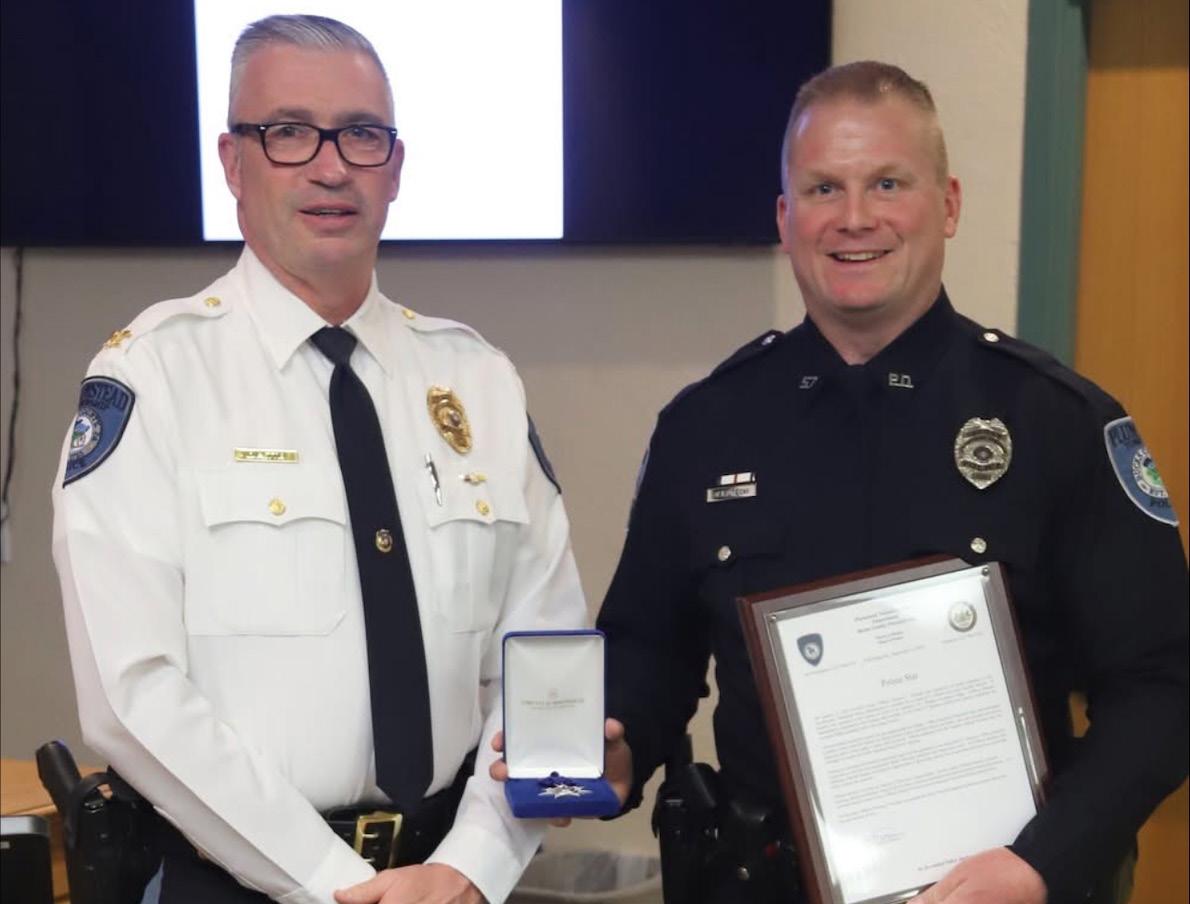
January 2, 2024, was a day seeming like any other, especially shortly after midnight. The roads were quiet, and a stillness lay over the Central Bucks area. Over the prior 24 hours, a ball had dropped on Broadway, and legions of mummers strutted their way down Broad Street. Most residents were fast asleep in their beds, perhaps sleeping-off the New Year’s Day festivities, or pondering their aspirational, even if short-lived, resolutions. For Sgt. Thomas J. Rutecki, of the Plumstead Township Police Department, this was going to be a routine shift patrolling quiet streets of suburbia. Then a call came over the radio, requesting Sgt. Rutecki’s assistance in locating a missing fifteen-year-old female, who was reported as being suicidal. Sgt. Rutecki sprang into action, and found the young woman sitting atop the overpass where Route 611 meets Route 313. Sgt. Rutecki utilized his extensive training and experience in communications and crisis management to develop a bond with the woman, discussing her school and school activities. With the woman having swung both of her legs off the edge of the overpass, Sgt. Rutecki slowly but deliberately seized her, and pulled her to safety.
Sgt. Rutecki has been appropriately commended for his heroism on that night. Sgt. Rutecki was awarded the Police Star, which is issued to an officer who has displayed heroic actions above and beyond the call of duty under conditions less than extreme, but with substantial risk to the officer’s safety. Also, in May 2025, Doylestown Post 175 of the Veterans of Foreign Wars named Sgt. Rutecki its 2025 Law Enforcement Officer of the Year.
The Writs commends and appreciates the heroism that Sgt. Rutecki displayed, and has the privilege to take this
SGT. THOMAS J. RUTECKI
Plumstead Township Police Department
By Travis P. Nelson
opportunity to learn more about Sgt. Rutecki, the man behind the badge.
The Writs: Tell us about yourself.
My wife and I recently celebrated our 25th wedding anniversary. We have two children. Our daughter recently graduated from West Chester University and is a competitive pro cyclist. Our son is a rising senior at East Stroudsburg University and is a member of their baseball team. I have been a police officer for 22 years, starting my career in the city of Newark, Delaware. I have been a member of the Plumstead Township Police Department for 20 years. During that time I have earned my master’s degree from Wilmington University in Criminal Justice with a concentration in executive leadership. I revamped the department’s evidence and property function and in doing so I streamlined the process for our officers while establishing greater accountability for items taken in by our department. Together with Ofc. Joseph Lastowka (retired) we created, in partnership with the Scouts of America, Post 5708 Explorers Post in honor of our fallen hero Ofc. Joseph E. Haunsey III (E.O.W. 5/18/02). The program provides students between the ages of 14-21, of the Central Bucks communities, with first-hand experiences of various aspects law enforcement officers are tasked with. We also established a scholarship program in honor of Ofc. Haunsey. I am also a certified car seat technician for the past 15 years.
The Writs: What made you want to become a law enforcement officer? Who were your role models or inspirations and why?
After graduating from Bloomsburg University with a degree in elementary education I wanted to work with at-risk kids. I started my professional career at Glen Mills Schools, where I learned the value and importance of how confrontation and de-escalation skills can calm those in emotional distress and promote greater understanding. During my time at Glen Mills, my interest in law enforcement grew and I saw it as an opportunity to interact with at-risk kids before their decisions potentially resulted in them being placed into a court-ordered facility. My role models would include my older brother, Dan. We spend a great deal of time together,

hunting and shooting our bows. I was also inspired by former Bucks County Courier’s Sports Editor Richard A. Dougherty, who was a father figure to me. He helped me believe in myself.
The Writs: Why did you choose to join your police department?
My wife and I were looking to move back home to the Bucks County area to be closer to home. During that process I was drawn to the Plumstead Township Police Department which has, and still does, enjoy a close working relationship with the community. Throughout my career I have told people I loved working for Newark City Police Department; I felt like a member of the department. However, in working for Plumstead Township I feel like a member of the community and that is a special feeling.
The Writs: What sort of training did you need to become a law enforcement officer?
My path to become a police officer included attending the Delaware State Police Academy, where I learned how to conduct traffic stops, and accident investigations, investigate various calls for service (theft/assaults/domestic incidents/etc.), administering Standardized Field Sobriety Tests, respond to mental health crisis, and become familiar with courtroom procedures and firearms, to name some of the topics covered. Beyond the knowledge I gained while at the academy, I participated in a 12-week Field Training Program that connects the academy experiences to real world application.
The Writs: Describe a day in the life of your job. In the simplest terms my job is interacting with people of our community, every one of whom is experiencing the day in their own unique way. Some people are happy to see us and interact with us, others maybe not so much. During those interactions it is important not to pass judgement but rather to be curious, seek understanding and offer assistance through various local and county resources. Then there are those interactions in which we need to take law enforcement action by effecting an arrest, or issuing a citation for traffic, or non-traffic, offense.
In addition to these direct interactions with the community I interact with our Victim’s Advocate, our newly appointed Co-Responder, and various other outside agencies which provide additional services to affected residents.
As a supervisor with the Plumstead Township Police Department, I conduct daily roll calls for my squad, review reports and ensure our team is in compliance with our agency’s policy and procedures and ultimately that we are
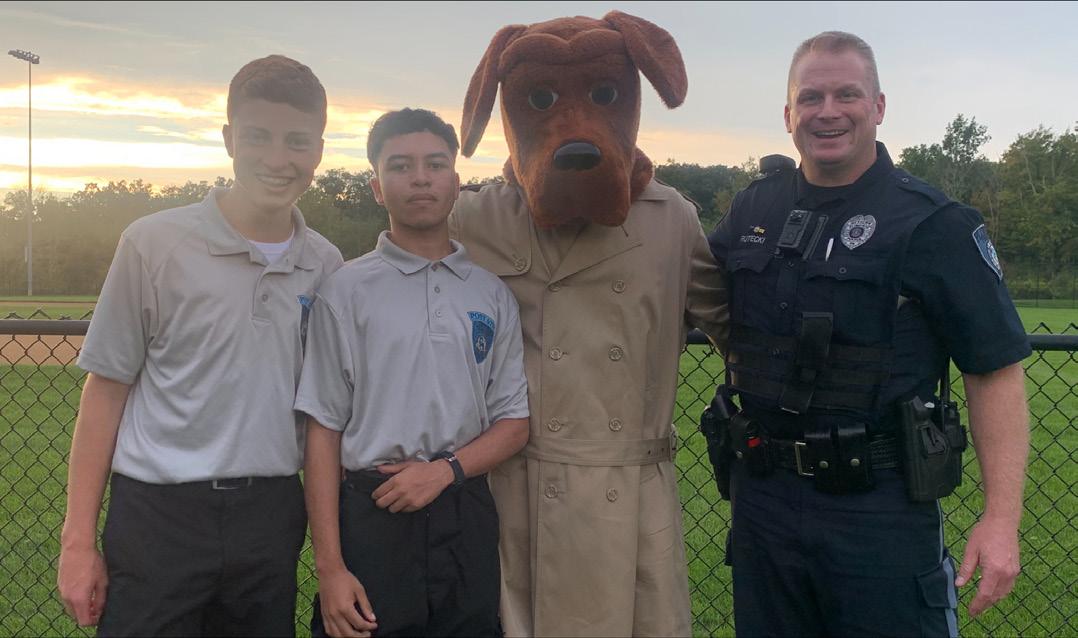
addressing the needs and concerns of our citizens. I also oversee our department’s Explorers Program which runs in conjunction with Scouts of America. Our program caters to the kids between the ages of 14-21 of the Central Bucks Community that would like to gain some perspective of the various aspects of a career in law enforcement. It gives them first-hand experiences on how to conduct traffic stops, accident and criminal investigations, courtroom procedures and firearm safety, just to list a few of the activities our cadets engage in. We hold meetings twice a month for approximately 90 minutes and the program runs year round.
The Writs: What are the best and toughest parts about your job?
For me, the best part of the job is how dynamic the job is. You never know what you’ll be confronted with on a daily basis. The toughest part of the job is always trying to have the right answer or response to situations. The calls we respond to can and do change very quickly which requires us to have the mental, physical and emotional flexibility to adjust to the situation. We are also expected to maintain a presence of mind to an individual’s civil rights, and possibly applicable case law, in addition to our department’s policy and procedures. The satisfaction comes from meeting that challenge head-on, and successfully resolving the issue where everyone has been kept safe.
The Writs: What is your favorite fictional character from the law enforcement industry and why? What is your favorite movie that portrays the law enforcement profession and why?
I love this question! My favorite fictional law enforcement character is only the GREATEST TV DETECTIVE… Columbo! Peter Faulk as Columbo did a phenomenal job. What I really appreciated was his very humble and unassuming nature as he engaged his suspects, often endearing himself to many of them, even as they grew more frustrated with his constant intrusion into their lives as he investigated their crimes.
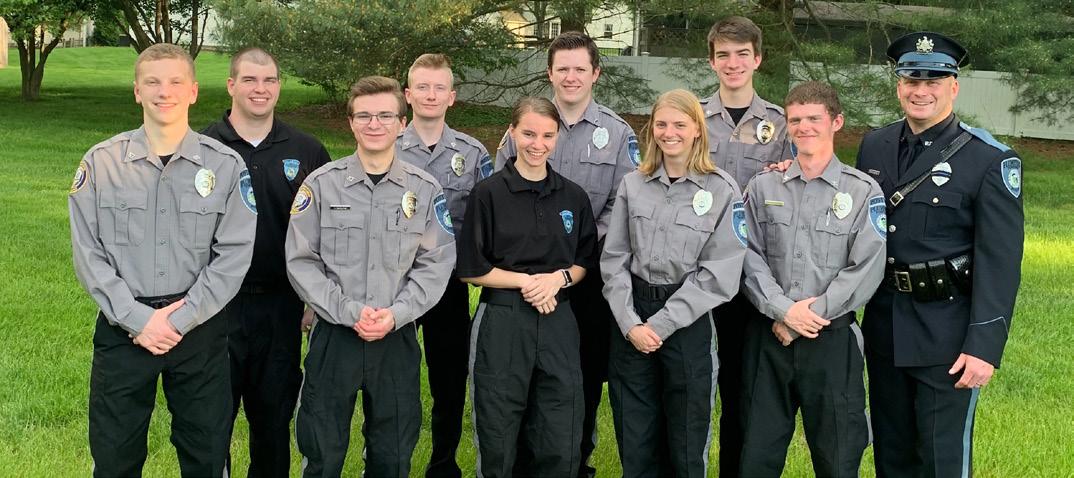
As for my favorite law enforcement movie my vote would go for Heat. How can you go wrong with Al Pacino, Robert De Niro, Val Kilmer, Tom Sizemore, Jon Voight? You have to love the constant cat-and-mouse that goes back and forth in the movie and ultimately it comes to the action in the movie.
The Writs: If you had not become a police officer, what other career or profession do you think you would have considered?
I can’t say specifically because I have really enjoyed the path life has led me on. However, I do know my career would have led me to working with kids.
The Writs: What has been your favorite place to travel and why?
Ocean City, Maryland. Prior to COVID my wife and I would vacation with all of my in-laws and the entire side of motherin-law’s family. It was a HUGE gathering. We vacationed together like that for over 20 years and the laughs we shared and the memories we made still live on in family lore.
The Writs: What advice would you give someone who is considering becoming a law enforcement officer in Bucks County?
My advice for anyone interested in serving any of the communities in Bucks County is to be open to understanding and actively engaging in community policing. Agencies throughout the county are constantly holding community events from National Night Out, Coffee With a Cop, and Shop With a Cop, to name a few. However, the community engagement does not stop there. There are countless services and programs offered through the county. Whether such services stem from an arrest, such as drug or veterans court for example, or through our various contact with citizens, we often refer and initiate services to residents in need. Some of these services include addiction referrals services, mental health assistance like the Co-Responder program, Bucks County Area on Aging, and services/housing for the homeless.
The Writs: What do you do when not working as a law enforcement officer?
I love going with my wife to watch our kids compete in their sports and enjoying all the different venues their sports take them (us). I also enjoy riding my bike, working out, shooting my bow and going hunting with my brother. And, in between all of these different activities, we love playing and relaxing with our dogs.
The Writs: What is your favorite bar or restaurant in Bucks County?
As far as restaurants I am going to have to say Dominick’s Pizzeria in Plumsteadville. “Dom’s” as we affectionately call it is truly a community hub. The owner Frank Propoto and his staff know everyone by name, they make everyone feel welcome and everything on the menu is fantastic! Frank has been extremely supportive of not only initiatives taken on by the police department, but also causes supported by countless community organizations. If you’re passing through Plumstead, stop by “Dom’s”—you won’t be disappointed.
Travis P. Nelson is a partner at Polsinelli, P.C., where he practices financial services regulatory and enforcement law, and is a Doylestown resident. Mr. Nelson is the Editor of The Writs

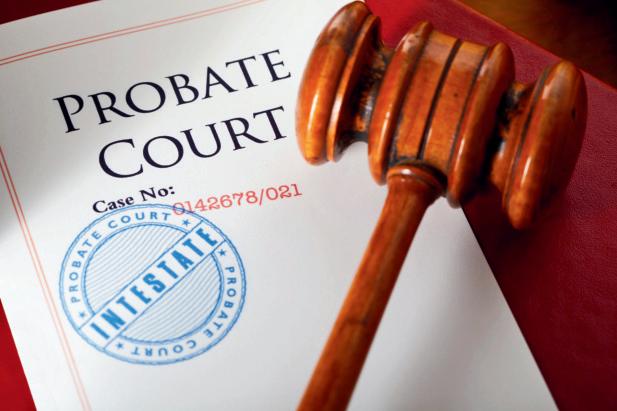
I have built a reputation for handling intricate deals efficiently, professionally, and successfully.
Trusts, estates, probate sales

Divorce-related transactions
Zoning, land development 25 years of experience
If it’s complicated, I’m your agent.


As a law enforcement professional in Bucks County it’s more than just “locking up the bad guys,” it’s helping people up when they are struggling.


Softball
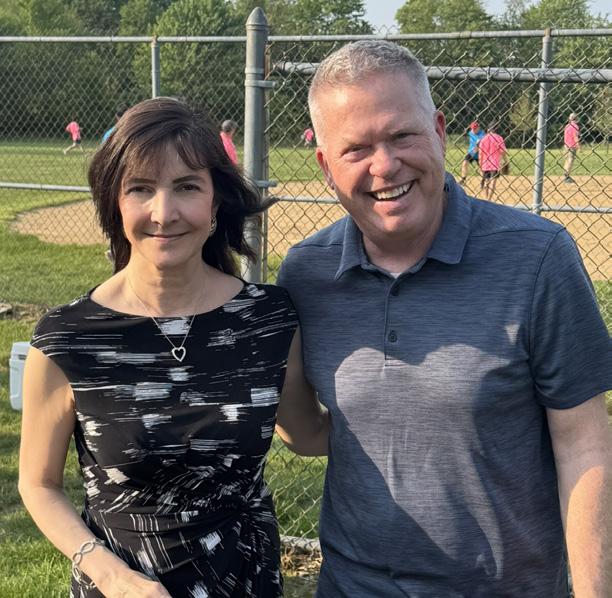



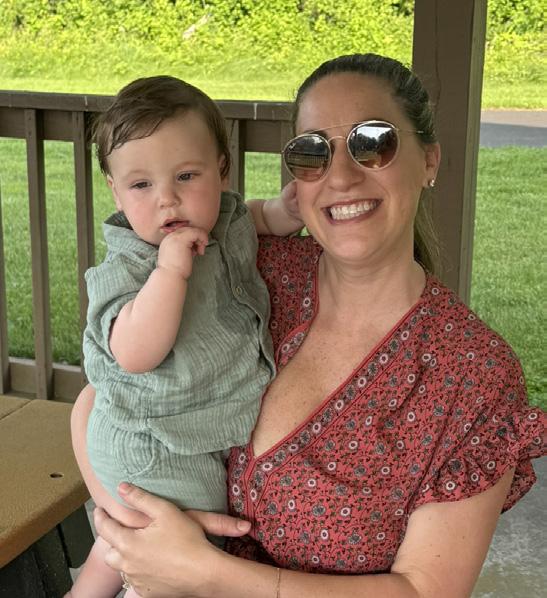

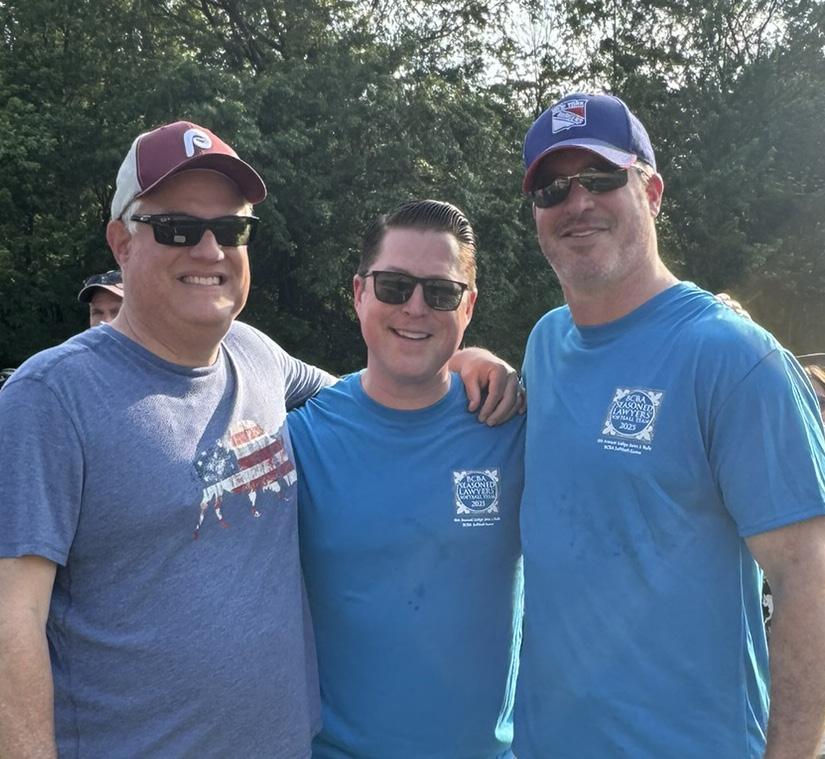
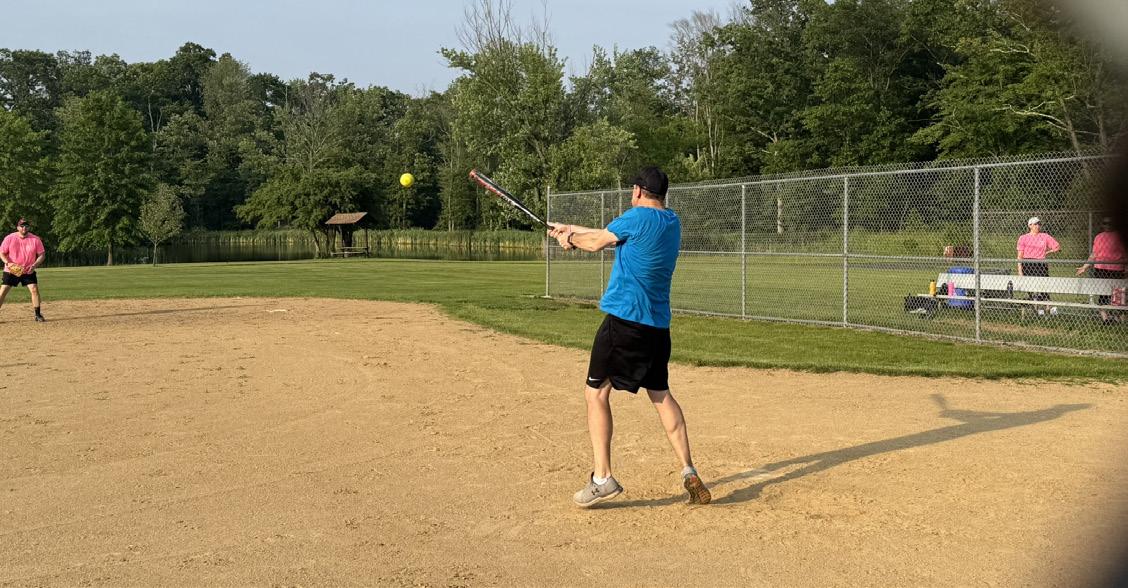
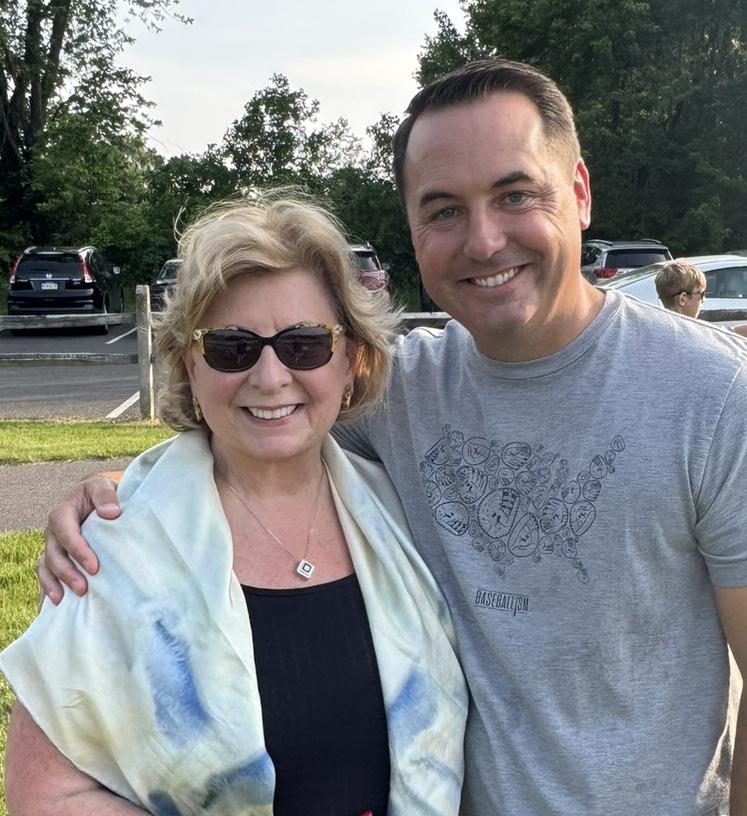

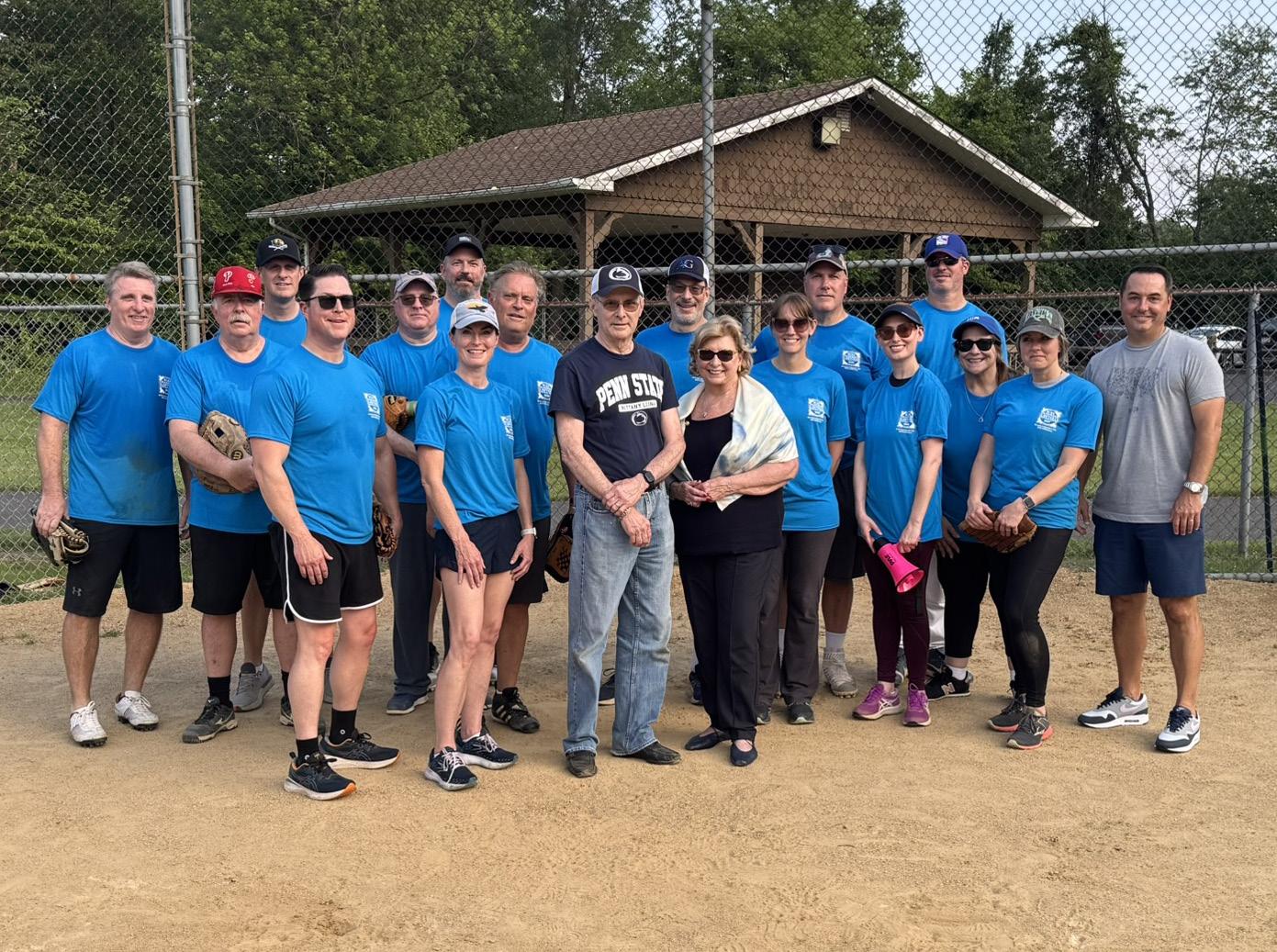
ATTORNEY BRIEFS

• Tyler Tomlinson, Esq., of Stark & Stark, P.C., was appointed to the Pennsylvania Bar Association’s Large Law Firm Committee and Membership Development Committee.
• Joseph A. Cullen, Esq., of Stark & Stark, P.C., was appointed to the transition team of Pennsylvania Attorney General Elect Dave Sunday in January 2025.
• Attorneys Jessica Pritchard, Lisa Bothwell, Gabriel Montemuro, and Elaine Yandrisevits, of Antheil, Maslow & MacMinn, LLP, presented at the BCBA’s Bridge the Gap 2025 program on May 13, 2025.
• Paige Delia, Esq., has joined the Municipal Law practice at High Swartz, LLP.
• Carin O’Donnell, Esq. and Jillian Roth, Esq. of Stark & Stark, P.C. recently led a seminar for fellow attorneys on best practices for litigating civil sexual abuse claims.
• Jennifer Dickerson, Esq., of Antheil, Maslow & MacMinn, LLP, presented on a BCBA CLE panel entitled “Drug Trends, Treatment and Access to Service,” on April 29, 2025.
• Jillian P. Roth, Esq., of Stark & Stark, P.C., joined the Board of Girls Empowered, an organization whose mission is to empower girls by providing them with the knowledge, skills, confidence, and resources to stand up for oneself, make positive choices, and be in control of one’s future.
• Vincent A. Guarna, Esq., a business and estate administration attorney, has joined High Swartz, LLP.
• Carin A. O’Donnell, Esq., of Stark & Stark, P.C., has been elected to the Board of Governors for the International Society of Barristers.
• Krista P. Harper, Esq., has rejoined Curtin & Heefner, LLP, where she practices business and real estate law.
• Stephan A. Cornell, Esq., as rejoined Fox Rothschild, LLP, in its Warrington, PA, office, as a partner in its Litigation Department.
The Writs invites all attorneys and their firms to submit notable achievements to share with the BCBA membership. Email your content to Travis Nelson, Editor of The Writs, at tnelson@polsinelli.com, and include “The Writs” in the subject line.

Wills for Heroes

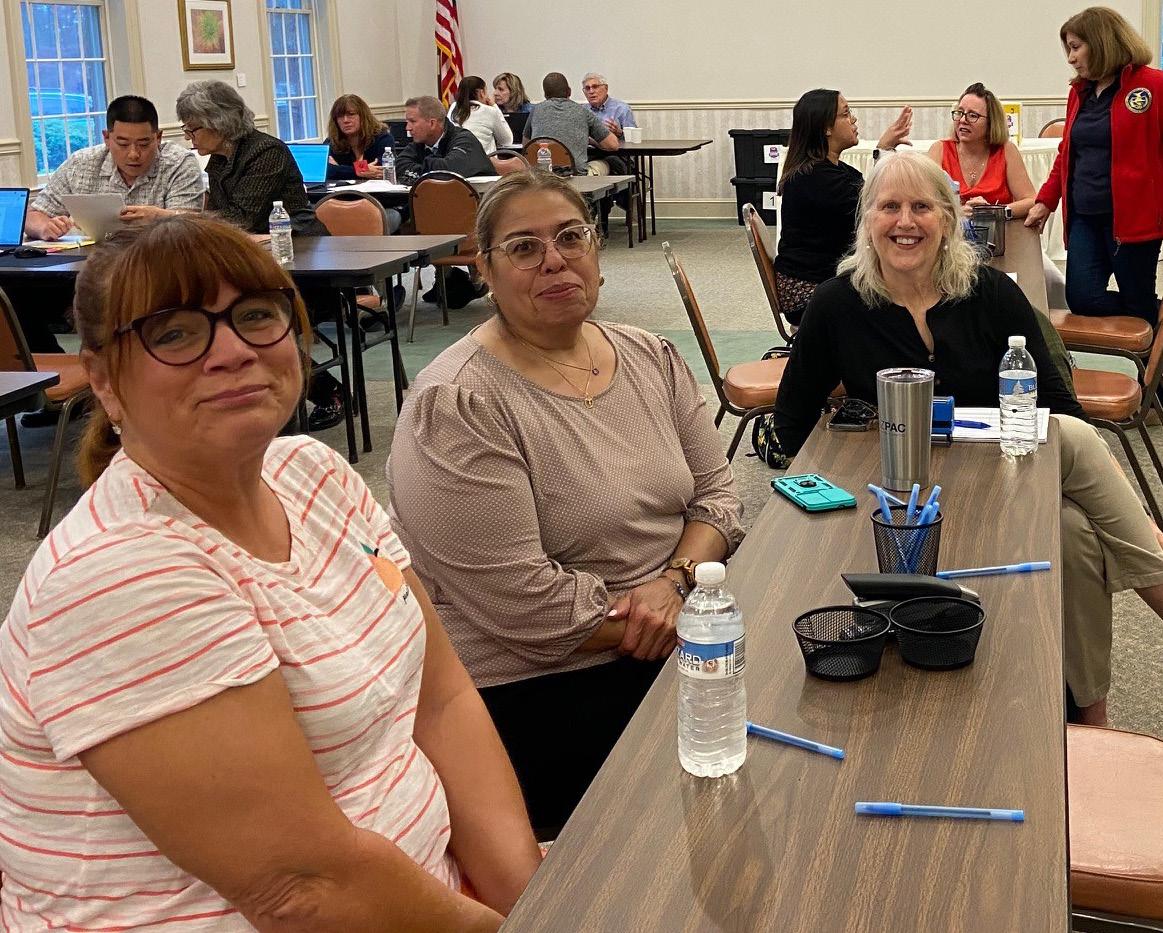

POSTER CONTEST WINNERS ESSAY CONTEST WINNERS

Grades 4–6
First Place: Hara Jang, Butler Elem. School, 6th Grade

Grades 10–12
First Place: Sophie Patterson, Pennsbury High School, 10th Grade
THE ROLE OF LAW IN AMERICA
By Emma Lloyd
Groveland Elementary School 5th Grade
What is the role of law in America? When I began, I thought law should keep people safe, prevent chaos, and improve society. Before finalizing my response, I wanted to hear the opinions of others. I emailed questions to an entertainment lawyer, state prosecutor, and a police lieutenant. Their answers helped to develop mine. Let’s talk about these interviews.

Grades 7–9
First Place: Ella Warby, Holicong Middle School, 7th Grade
I interviewed three different people with careers in law asking them about their jobs and why they chose their jobs. I also asked their opinion of the role of law in America. Mr. Matthew Lloyd, and entertainment lawyer, said he wanted to help people. Mr. Lloyd says that he helps people share their talents and protects people from being taken advantage of. Mrs. Erin Smith, a state prosecutor, didn’t want to “chase bad guys” but instead wanted to solve crimes as part of the criminal justice system and enforce criminal laws. She believes law gives people expectations for what might happen to them. Mrs. Smith also believes law keeps order in our country. Mr. Larry Bozzomo, a police lieutenant, wanted to “do something worthwhile.” Mr. Bozzomo says laws protect people from being victimized, and his job is to enforce these laws. After interviewing all three people, I found that they agree with me and feel that law protects people. Though they all feel the same way, they enforce the law in different ways.
My final response to the question What is the role of law in America?
is PROTECTION. Law protects people, people’s lives, their freedoms, and their rights. Without laws, there would be chaos. As you can see, law is pretty important! What is YOUR opinion? What is the role of law in America?
THE ROLE OF LAW IN AMERICA
By Ryan Yuan Newtown Middle School 7th grade
Laws are a system of rules which citizens in a society have to follow. The law may be enforced using strict punishments. In past civilizations, laws have been used for many reasons. For example, the Hammurabi code was made in 1754 BC to ensure that there was a reliable law that could be used to solve problems. Similarly, laws in the U.S. also serve multiple purposes. They establish order, structure the government, protect the rights of the citizens, and ensure fairness for everyone.
First, the role of the law in America is to establish order. The law sets clear boundaries on how citizens should act. It defines illegal actions such as theft, assault, fraud, arson, murder, and more. The law also enforces punishments for such acts, such as jail time, fines, and probation. The law in America also enforces smaller minor offenses such as petty theft, shoplifting, minor drug possession, trespassing, and traffic violations. Punishments for these crimes are less severe than for other major offenses, but are still important nonetheless. Laws also help establish what citizens should do on a daily basis. The law forbids speeding, jaywalking, underage drinking, tax evasion, and more. This causes everyone in the U.S. to maintain social order and stay out of trouble. Across the country, there are multiple signs that warn citizens of these laws. For example, there might be “no trespassing” signs to inform citizens that trespassing would be illegal

there, and it may be enforced if such an act was committed.
Secondly, the Constitution, known as the “supreme law of the land,” organizes the U.S. government. The U.S. is a democracy and relies on-a system of checks and balances. There are three governmental branches in America: the executive branch, legislative branch, and the judicial branch. The executive branch is responsible for enforcing and implementing laws. This branch is made up of the president, vice president, the cabinet, and other agencies. The legislative branch is responsible for creating laws, declaring war, regulating commerce, controlling taxing, and deciding on spending policies. The legislative branch is made up of the Congress, which is divided into the Senate and House of Representatives. The judicial branch essentially acts like a check for the executive branch and legislative branch. They help to interpret laws and apply them to real-world situations. They also determine if the laws are constitutional. Moreover, the judicial branch has courts which help settle disputes. If someone breaks the law or wants to sue someone, it can be handled in the courtroom. This is where lawyers and their clients debate to convince the judge to side with them.
According to the official webpage of the U.S. court system, “Courts provide a peaceful way to decide private disputes that people cannot resolve themselves. Depending on the dispute or crime, some cases end up in the federal courts and some end up in state courts.” This shows that court cases are a useful tool of the U.S. legal system and help the U.S. maintain balance and order. To sum it all up, these three branches make up a near-perfect system of checks and balances. No one branch is more powerful than the other, and they all work together to make America a safe and orderly place. For example, if the president wants to declare war, then
he needs approval from the legislative branch first to do so. Then, if the legislative branch wants to make a law, they need approval from the president first in order to pass the law. The Judicial branch also does not get power over the others. The judicial branch cannot write or pass laws, but they can check laws passed from the legislative branch and approved by the executive branch to overturn them. Some countries are not as organized as the United States. The U.S. is a democracy, but other countries rely on other systems of government, such as monarchies, dictatorships, anarchies, and more. A monarchy is when a country is ruled by a king or queen. Unlike the United States, a single person has all the power. This can create a problem because it can make the government unreliable, unfair, and easily corruptible. Another problem is when the monarch dies and leaves no heir. Does a relative become the new ruler, or is there another way to decide? Dictatorships are undoubtedly one of the worst types of government. A dictatorship is when a single person or a small group hos complete control over a society. This presents a problem because it restricts freedom. On the other hand, anarchy is when there is no government. This gives too much freedom to the citizens and leads to chaos. This shows that the law and government of America is much better than other types of government, helping America maintain balance and order.
Not only do laws establish order, but they also protect the rights of citizens. According to The Judicial Learning Center, “Laws protect our general safety, and ensure our rights as citizens against abuses by other people, by organizations, and by the government itself. We have laws to help provide for our general safety. These exist at the local, state and national levels.” This shows that another role of laws is to protect and allow citizens to express their rights. There are a total of 27
amendments that protect our rights. The first ten amendments are called the Bill of Rights. In the Bill of Rights, the First Amendment guarantees freedom of religion, speech, the press, assembly, and the right to petition the government. Afterwards, the Second Amendment states, “A well-regulated Militia, being necessary to the security of a free State, the right of the people to keep and bear Arms, shall not be infringed.” This gives U.S. citizens the right to legally own weapons. The Fourth Amendment states, “The right of the people to be secure in their persons, houses, papers, and effects, against unreasonable searches and seizures, shall not be violated, and no Warrants shall issue, but upon probable cause, supported by Oath or affirmation, and particularly describing the place to be searched, and the persons or things to be seized.” Essentially, this protects U.S. citizens from unreasonable searches. The Fifth Amendment protects citizens from being forced to testify against themselves in court, also known as the right to remain silent, and protects against double jeopardy, which is being tried twice for the same crime. The Sixth Amendment ensures that those that have been accused of a crime can testify and defend themselves. The Eighth Amendment states, “Excessive bail shall not be required, nor excessive fines imposed, nor cruel and unusual punishments inflicted.” Lastly, the Tenth Amendment states, “The powers not delegated to the United States by the Constitution, nor prohibited by it to the States, are reserved to the States respectively, or to the people.” In short, this amendment clarifies that powers not specificaily given to the federal government are instead given to the state and local governments. Other than the first ten amendments, there are also seventeen more. These include amendments such as the Fourteenth Amendment, which guarantees citizenship to all persons born in the United States, including

formerly enslaved people, and the Twenty-Fourth Amendment, which abolishes and forbids the federal and state governments from imposing taxes on voters during federal elections. In summary, the U.S. has many different laws that protect the rights of its citizens.
Moreover, the law in America also ensures fairness to all, which is why America is nicknamed “Land of the Free”. Back in the late 1700s and early 1800s, owning slaves was a common practice in America. It was not until 1865 when the U.S. passed the Thirteenth Amendment: “Neither slavery nor involuntary servitude, except as a punishment for crime whereof the party shall have been duly convicted, shall exist within the United States, or any place subject to their jurisdiction.” Even with slavery gone, African-Americans were still discriminated against and did not have many rights. Another group that did not have rights was women. It was not until 1920 when the Nineteenth Amendment was passed: “The right of citizens of the United States to vote shall not be denied or abridged by the United States or by any State on account of sex.” The Civil Rights Act was then passed in 1964 and ended legal discrimination against African-Americans. Other smaller laws like the Equal Pay Act of 1963, as well as the Americans with Disabilities Act of 1990 and the Equality Act, all spread equality no matter race, heritage, gender, and others. The Equal Pay Act of 1953 ensured that women working the same job as men were paid the same. The Disabilities Act of 1990 was made to make sure that people with disabilities were given equal treatment and not discriminated against. The law in America also promotes equality because, as stated before, U.S. citizens get freedom of speech, religion, assembly, and the press. Freedom of speech gives all citizens of the U.S. rights to speak out their ideas without
fear of interference or punishment from the government. The freedom of religion gives all members of the U.S. the power to practice their religion privately and publicly without interference. The freedom of assembly ensures people can gather and meet. Last but not least the freedom of the press allows American citizens to publish thoughts, information, or opinions without interference from the government. The U.S. also ensures fairness to all because, unlike monarchies, any U.S. citizen that satisfies the right conditions is able to hold a political position. The only requirements for running for president is that you have to be at least 35 years old, you have to be born in the United States, and you have to be a resident of the U.S. for at least 14 years. Many U.S. citizens meet these requirements. Other political offices, like the senate, require you to be at least 30 years old and be a citizen for at least nine years. Another political role is the House of Representatives, which requires you to be at least 25 years of age-and be a citizen of the U.S. for at least seven years. The principle “equality before the law” means that everyone, including the government, is subject to the same laws and legal processes, making sure everyone gets the same, fair treatment.
In conclusion, the role of the law in America is to establish order, protect the rights of the citizens, and ensure fairness to all. In America, the law is extremely important because it provides the rules and instructions on how citizens should act. If America did not have laws, then things would quickly fall apart. The order would descend into chaos. Some other countries are not as lucky as the United States. Countries such as Nazi Germany during 1933-1945 were corrupt because they did not have a system of law like ours. Nazi Germany was a corrupt country because they believed in fascism, which created many problems. This restricted
the freedom of the citizens, so they did not have freedom of speech, religion, assembly, and the press, as well as the right to bear arms. There was not a system of checks and balances. Instead, there was just one person in power. This led to many wrongful actions like Jewish persecution, waging wars, and believing one race was better than another. So next time you think about the law, remember that the law in the U.S. is what helps us stay organized, protect our rights, and ensure fairness to everyone.
Citations
The Bill of Rights: a Transcription. (2024, July 10). National Archives. www. archives.gov/foundinq-docs/bill-ofriqhts-transcript
Bill of Rights, U.S. Constitution, Constitutional Amendments, Civil Liberties, American History, Individual Rights, Legal Protections. (n.d.). Bill of Rights Institute. https:Ubillofrightsinstitute.org/ primarn-sour-ces/bill-of-rights
Branches of the U.S. government (n.d.). www.usa.gov/branches-of-government
Constitutional AmendmentsAmendment 24 - “Elimination of Poll Taxes.” (n.d.). Ronald Reagan Presidential Library and Museum www.reaganlibraru.gov/constitutional-amendments-amendment-24-elimination-poll-taxes#:~:text=Constitutional%20Amendments%20 %E2%80%93%20Amendm ent%2024%20%E2%80%93%20 %E2%80%9CElimination%20of%20 Poll%20Taxes%E2%80%9D,-Political%20cartoon%20bu&text=Amendment%20Twentu%2Dfour%20 to%20the on%20voters%20during%20 federal%20elections.
Court Role and Structure. (n.d.). United States Courts. www.uscourts. gov/about-federal-courts/courtmle-and-structure

Davis, K. (n.d.). Checks and balances. bensquide.gpo.gov/j-check-balance
The Judicial Learning Center. (2019, August 7). Why do we need laws? The Judicial Learning Center. The Judicial Learning Center I an Online Companion to the Judicial Learning Center in St. Louis, Missouri. iudiciallearningcenter. org/law-and-the-rule-of low/#:~:text=Laws%20orotect%20our%20 qeneral%20safetu,Laws%20about%20 food%20safetu
THE ROLE OF LAW IN AMERICA
By Molly Snyder Pennsbury High School 11th Grade
“If men were angels, no government would be necessary.” This was stated by James Madison in the Federalist Papers. An intriguing thought, dating back to 1788, that still applies today. It is evident that some intellectuals at the time were already aware of the importance that our government and law would have on society. Law has shaped our society, distributed justice, created social norms and ethics.
When taking the time to reflect, it becomes apparent how many societal norms have come from law. With such clearly outlined rules, the law has the ability to shape behavior and affect everyday interactions. This can include how we act in public, how we treat others (especially those of authority), and inclusivity. For example, in Pennsylvania there is a law that mandates school attendance. This requires children ages six to eighteen to attend school. With this law in place, it is normal in our country for kids to go to school and be educated. However in some countries such as South Sudan, education is not mandated so it would not be a societal norm or expectation for children to be educated there.
Law has also distributed so much justice to those seeking it in our country. To expand on James Madison’s idea, people are constantly being wronged, and there are always violations of law. It is such a beautiful part of our country, that when you are wronged, justice can and will be served. Good people have bad things happen to them. It is the sad truth. But the positive side of this is because we have law, there will be rightful consequences for those who violate rules.
Even with all of our history, America is a young country. We are still building the country as we go. One value this country was originally established under is liberty and justice for all. Law has stood the test of time and laid the foundations of our beautiful country.


